gair rhydd

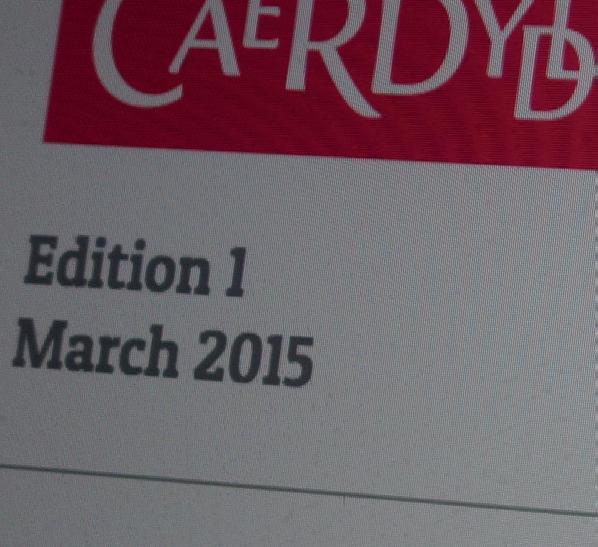






In this week’s issue: why we need electoral reform, why we need to rethink paying for sex, making the most of revision breaks, and why the shape of your glass effects how much beer you drink















In this week’s issue: why we need electoral reform, why we need to rethink paying for sex, making the most of revision breaks, and why the shape of your glass effects how much beer you drink






Student: “I will have wasted a year of my life with nothing to show for it”
UMichael
p to 69 members of staff are set to be made redundant as part of a restructure of the Medical School, Gair Rhydd can reveal. MEDIC Forward, a project “which aims to ensure that we have a School of Medicine that is fit for the future,” will see the university disinvest from entire departments. It is reported that opportunities for redeployment within the organisation will be limited, and it is reported that there are set to be further redundancies for technical and support staff
Tese revelations come following an “institute meeting” at the Institute of Molecular and Experimental Med-
icine. Te meeting, described by Institute Director Colin Dayan as “very important”, was held to “discuss recent developments, hear advice from those involved with the process and show support for the large number of IMEM staff and students impacted.”
In the meeting, it was revealed that 69 staff had received letters notifying them that their area of research faced disinvestment. While the University has promised that there would be “short term pain,” a large number of students are entirely disillusioned by the proposals.
Tose who have spoken to Gair Rhydd have offered wide-ranging

testimony. One said that the “lack of communication has been disgusting”. Another said that they were considering quitting their PhD: “Part of me realises I will have wasted a year of my life with nothing to show for it.”
Further complaints suggest that the School of Medicine is failing those to whom it owes a duty of care: “[Te school] is supposed to have a duty of care to its students - right now I feel like a second-class student who is not a priority.” Another student, who acts as a seminar leader at the Heath, said that they “contribute to teaching of undergraduate students,” but that their “contributions to the school
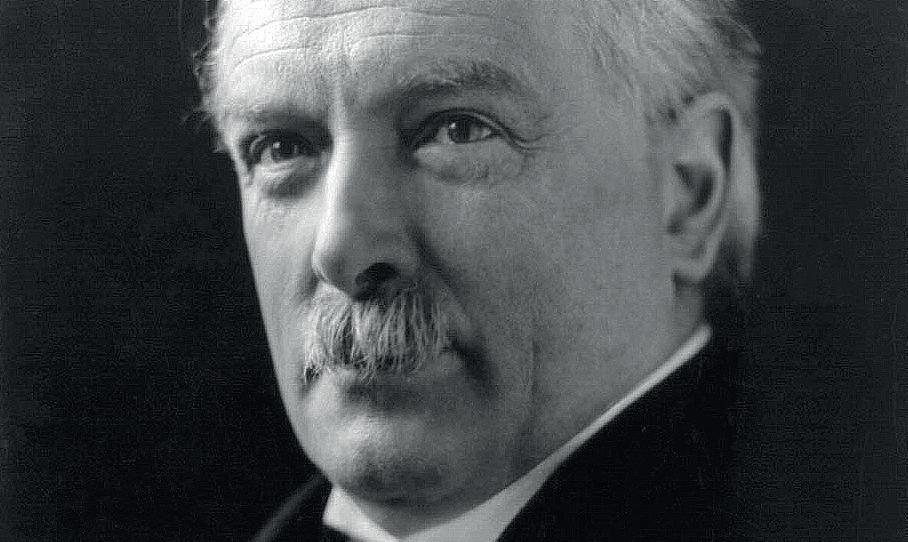
have not even been considered.”
Te University and College Union has also come out against the plans.
Cardiff University UCU Representative Chris Graves spoke to Gair Rhydd, and said: “Te UCU will speak to council on Monday 18th in order to make sure that MEDIC Forward is constructed more holistically, not just narrowly framed in achieving results for REF 2020.” REF, or Research Excellent Framework, is the process by which the volume and quality research output of Higher Education Institutions is judged.
Gair Rhydd has seen UCU proposals and other materials submitted to
MEDIC Forward news, one of many documents setting out the proposed future of the medical school.

Continued on page 4

EDITOR
Michael O’Connell-Davidson
GAIR
RHYDD CO-ORDINATOR
Elaine Morgan
NEWS
Georgia Hamer
Katie Evans
Alexander Norton
Anna Lewis
ADVICE
Kirsty Fardell
COMMENT
Anne Porter
Gareth Evans
Olivier van den Bent-Kelly
COLUMNIST
Jason Roberts
POLITICS
Carwyn Williams
Lauren Boyd Rhiannon Tapp
SCIENCE
Shanna Hamilton
Meryon Roderick
SOCIETIES
Hannah Sterritt
PARK LIFE
Vidya Brainerd
TAF-OD
Steffan Bryn Jones
Morgan Owen
SPORT
David Hooson
Rory Benson
Joe Atkinson
PRODUCTION
EDITOR
Sum Sze Tam
DIGITAL EDITORS
Jordan Adams
Gregory McChesney
SOCIAL MEDIA
EDITOR
Maria Mellor
EDITORIAL ASSISTANTS
Jack Boyce
Eleanor Parkyn
Want to join the team?
Editorial conferences are each monday at 5PM. Proofreading takes place on Thursdays at 6PM in the media office during print weeks.
Write us a letter letters@gairrhydd.com Tweet us: @gairrhydd
At Gair Rhydd we take seriously our responsibility to maintain the highest possible standards. Sometimes, because of deadline pressures, we may make some mistakes. If you believe we have fallen below the standards we seek to uphold, please email editor@gairrhydd.com. You can view our Ethical Policy Statement and Complaints Procedure at cardiffstudentmedia.co.uk/complaints
Opinions expressed in editorials are not reflective of Cardiff Students’ Union, who act as the publisher of Gair Rhydd in legal terms, and should not be considered official communications or the organisation’s stance. Gair Rhydd is a post office registered newspaper.
As this semester comes to a close, we’ve selected a new Gair Rhydd editor for the coming year
Tis week we appointed a new student to serve as the executive editor of Gair Rhydd next year. Joe Atkinson, of Gair Rhydd Sport / Campus in Brief fame, will be editing the paper come September. After this issue, there will only be three more with my name on the masthead, and then I’ll be gone, reduced to another footnote in Gair Rhydd’s history.
It’s pretty sad, to be honest. Gair Rhydd has become as integral to my identity as my silly hair, my love of Dark Souls and my KMFDM t-shirts. I’ve made a lot of friends and forged a lot of connections, and I’m extremely proud of my team’s achievements this year.
We’ve broken a large number of stories this year, and I think we genuinely have recaptured the investigative flair the publication once had. We revealed the bluster that marred the Welsh language officer referendum; we broke the voting fraud scandal that almost prejudiced the Union election in February; and we revealed that the Medic Rugby team was the second biggest threat to the NHS after a Tory majority government. ( Tat last one’s a joke, before I get any angry letters from the Right.)
We started to seriously report on the Senedd rather than focusing on the Westminster bubble, when scrutiny of the former is of crucial importance to the Welsh Nation. Our comment section has told more stories and commented less on people like Katie Hopkins, the twisted ankle of public discourse. And our societies section is fucking ace. Hannah Sterritt undersells herself and her work, but I know a lot of people love that shit, and I do, too. Te listings were a smashing idea.
I hope this tradition is sustained. Lord knows that we need it to. I recently spoke to a member of the Union administration who expressed a sense that we should hold back as far as critiquing our par-
ent organisation is concerned. Tey joked that you would not expect to see a Journalist for the Times launching into a tirade against Rupert Murdoch. I am not sure that the student body would like to see the relationship between GR and the Union devolve into something resembling News UK and Rupert Murdoch. We have lost our seat at the sabbatical officer table (and what a table it is!), but we have gained our independence. I think we’ve used it for all the right reasons and in all the right ways.
Consider, for example, Alex Norton’s story earlier in the year about drug use in Y Plas. Was it a commercially sensitive story? Oh, yes. Did it potentially hurt the Union’s bottom line? Quite possibly. But was it necessary? Absolutely. For the alternative - a police investigation, or someone taking something beyond what they could handle - would have hurt more than just the Union’s bottom line. In the long run, I believe our reporting has helped the SU stay the path, and I think it will be judged to have done such.
I’ve spoken at great length to the SU’s Director of Membership Services Steve Wilford, the Sabbs and anyone else interested about how I believe this newspaper is an invaluable public service to Cardiff University’s student body. We’re an integral part of the ongoing conversation between staff and students, and I think that the student body is better off for having us. We’ve fought corners that even the Sabbs have chosen not to occupy.
But as Wilford dutifully points out, we’re a service to our membership, too. And the many contributors we’ve had this year join a pantheon of thousands that include Huw Edwards and Meirion jones. On the balance of probabilities, those graduating and leaving their positions on the editorial team will not be so lucky as to occupy analogous positions in the
professional world, but I hope that regardless they see their contributions as being things of great value, and I hope we’ve been of great value for them. Tat needs to be maintained, too.
I have plenty of advice for Joe that I’m happy to share in this space, and it’s not all philosophical. Be kind, act in the interest of students, and for fuck’s sake, don’t resign a week in and dump the paper on your deputy editor. Removing my tongue from its usual space in my cheek, I’d follow that up by saying that it’s your audience that gives you legitimacy.
Te committee that chose Joe (made up of members from the current editorial team) has full faith that he will be able to maintain what made the newspaper great this year, and perhaps make it even better. Tat’s all that really matters, because. My advice means terribly little in the long run, for in four issues time, we’ll be dead and buried.
I expect to see Gair Rhydd undergo a similar sort of change to that which Quench did once my grubby hands were removed from the steering wheel. I was very proud of the work me and the Quench team did last year, but this year’s Quench has been beyond my comprehension. I have essentially no imagination, but this year’s publication is bursting with it. If Em Gibbs transforms the publication like Sum Sze Tam did, then fuck, we might as well shut Gair Rhydd down and divert all our funds over there.
Tere’s a lot to be optimistic about for those of you who will be here next year. But there’s just as much to be optimistic about for those of us who’re graduating this year. We’re leaving a Russell Group Uni with (hopefully) a good degree, and we’re leaving Gair Rhydd and Quench in the right hands. Best of luck next year, Joe. Stick it to ‘em.
MOCD

Gair Rhydd understands that up to 69 members of academic staff are set to be made redundant under plans to restructure the Medical School. Te university are planning to divest from entire departments of the school that will see the jobs of many members of staff put at risk.
Bus company New Adventure Travel (NAT) sparked outrage as they advertised their £3 daysaver deal by superimposing the details of the all day ticket over topless men and women with the phrase: “Ride me all day for £3” - at least they caused offence to both sexes. Te company insisted that the advertisement was good-natured, but immediately removed them from their buses.
Te world famous CF10 hangover sandwich may soon be no more after plans to close the Students’ Union café were disclosed. It will be reportedly redeveloped into a dance studio as part of a wider range of works on the Union. Members of staff who have worked in the café for more than ten years have described their exasperation.
Te University is set to welcome the United States’ ambassador to the UK this week as Matthew W. Barzun visits Cardiff to deliver a guest lecture. Mr Barzun will give a talk entitled: “America’s Role in the World: Hands on or Hands Off?” this Wednesday. Plans long in the making were finally made reality as a GP practice was opened on Park Place. Te practice is currently open between 12:30pm and 2:30pm from Monday to Friday and works on an appointment system. It is located on 47 Park Place, and is currently registering new patients.
Gair Rhydd, Quench magazine, CUTV and Xpress Radio came together to celebrate the best of Cardiff Student Media with the CSM Awards held last Saturday. Te event helped to recognise some of the very best work done this year by the outstanding and talented contributors of every part of the student media sphere in Cardiff Te event took place in the Great Hall of the Students’ Union, which had days earlier played host to the Societies Ball.
Te fallout to the General Election continues, as Nigel Farage’s decision to resign, then un-resign, as the leader of UKIP was challenged. Dissenters, including the party’s only remaining MP Douglas Carswell and MEP Patrick O’Flynn, questioned Farage’s leadership, with the latter describing him as a “snarling, thin-skinned, aggressive” man.
George Osborne vowed greater powers to be devolved to cities in England as part of a ‘devolution evolution.’ Te Chancellor of the Exchequer underlined plans in his first speech since the election, promising that cities would have more say on topics such as transport, policing, housing and planning.
Having resigned as Labour leader, Ed Miliband attended a VE Day parade before jetting off to Ibiza to kick back and relax following his election defeat. Miliband’s brother, David, stuck the knife into his former party and sibling, criticising the strategy and overall tone of Labour’s election campaign.
So the race to replace ‘Red Ed’ is on, as Chuka Umunna, Yvette Cooper, Mary Creagh, Andy Burnham and Liz Kendall all announced their leadership intentions. With the party under a cloud following their significantly disappointing showing on May 7th, a tug-of-war between those wanting a return to the Blair years and those wanting to move away from New Labour has emerged. Umunna, seen as one of the most promising potential candidates for leadership of the party, later pulled out of the running amidst reports of a Sunday newspaper sting.
Letters sent by Prince Charles to Tony Blair and members of the former Labour leader’s government in the mid-2000s have been revealed under the Freedom of Information Act. Communications reveal that Charles was concerned about troops going to Iraq not being provided with substantial equipment, and was firmly in favour of the controversial badger cull.
A second earthquake in the space of a few weeks hit the Asian country of Nepal, causing further devastation to the recuperating nation. Te earthquake, of magnitude 7.3 on the Richter scale, has added dozens of names to the death toll that reached up to 8,000 since the original quake.
Te African nation of Burundi was thrown into chaos as an apparent coup was denied by incumbent president Pierre Nkurunziza, who had announced his intention to stand for a third term, which his opponents declared as unconstitutional. Mr Nkurunziza took to Twitter to deny reports that he had been overthrown.
Ten people from Myanmar have died on a boat stranded on the Andaman Sea having been denied entry to Tailand. Te boat, carrying up to 350 migrants, is one of many stuck off the coasts of Tailand and Malaysia. Many of the migrants are Rohingya Muslims who can’t return to Myanmar as they are not recognised as citizens of the country and face persecution.
A report on violence in Brazil revealed that annual gun deaths had risen to a 35-year high, with around 42,000 people dying from firearm-related crimes in 2012. Te study was undertaken by the UN and the Brazilian government, with nearly all deaths being described as murder.
Harry Shearer, the voice of Mr Burns and Ned Flanders on Te Simpsons, announced that he was leaving his role on th iconic American cartoon after more than 25 years as part of the cast. Te 71-yearold has allegedly fallen out with producers, but insisted that his departure “wasn’t about the money.”
Over in Australia, it was reported that a snake was surgically operated on to remove a pair of barbeque tongs that it had accidentally eaten. Te snake, a pet python, had apparently swallowed the utensils when its owner tried to feed it a dead rat.
A second earthquake in the space of a few weeks hit the Asian country of Nepal, causing further devastation to the recuperating nation
tweet us @gairrhyddnews
email us news@gairrhydd.com or visit us online at gairrhydd.com/news

Continued from front page
“
” I am externally funded and have no idea what will happen to my project and my money should my supervisors leave PhD student
the University Council. Tey highlight the concerns of both students and staff, and state that “there is a real risk of severe reputational damage to Cardiff University resulting from major omissions in the process to date, to say nothing of the impact on the staff involved”. Te damning report adds that “it is clear that as a result of previously admitted failures of management within the School, the current senior management team does not have accurate information on the activity of large sections of its staff.“
Te 69 letters to staff signal the start of a 90-day consultation period, during which individuals are interviewed and business cases put to them, explaining why their research area is set to be disinvested from. Recipients of the letters are reportedly unable to access copies of their business case before the interview which would ultimately decide their redundancy. Tis asymmetry of information between HR and the people affected was raised with a HR representative in attendance at the meeting.
Tough the representative was on hand to answer questions from staff and students, they reportedly “could not really offer any answers,” to this query or others according to one person in attendance. Questions concerned contracts, redundancies, and external funding - as one student described, “literally everything.” Tey added that “[the representative] could not answer a thing.”
Many of the staff set to be made redundant supervise PhD, masters and sandwich students. Tese students will continue to study while consultation continues, despite not knowing what will happen at the end of the 90day period. One student has described their circumstances as being “completely up in the air”.
Tey cited advice from the university to maintain their “usual professional approach” to their projects and described it as insulting. “Basically, I am expected to keep doing my work, when I am potentially set to start a new project anyway.” Another student complained of the uncertainty: “I am externally funded and have no idea what will happen to my project and my money should my
supervisors leave.”
It is not clear who will supervise students in departments set to be entirely disinvested from. In the “small number of cases” where this might happen, the university “has pledged to support those students in as comprehensive a manner as possible.” Further, a member of university staff familiar with the restructure told Gair Rhydd that they would be “very surprised” if any students were asked to undertake something “other than what they signed up for.”
However, an FAQ sent to students who may be affected states that for some students, the university “might consider the allocation of a new project” to any student who would be orphaned by the redundancy of their supervisor. Tis would effectively force PhD students to restart their research projects from scratch.
One student said that they have “been advised not to talk too much about Medic Forward plans” for “fear of damaging supervisors chances of a good outcome.” Tey added that: “while primary supervisors have been very supportive, it has been a very lonely and upsetting time.” Te advice to remain silent about the reforms is the reason that she and other students have requested that any quotes they have given would be used without attribution in this article.
Claire Blakeway, VP Heath Park, told Gair Rhydd that following Monday’s meeting she was “concerned.” She reported that the Students’ Union had not been consulted about the implementation of MEDIC Forward: “I did voice my concerns [about the lack of consultation], and I think communication is key to ensuring that the whole reform is as transparent and smooth as possible.”
“Tere is certainly an atmosphere of uncertainty amongst the student body that [they] are at potential risk of being affected by these changes. I believe that this comes from the fact that students are nervous about what may happen if their area of research is disinvested in.”
“I can understand why students feel like this, as consistent supervision throughout a PhD is of great value to students who depend upon the sup-

port and relationships they build with experts in their field. However it is important to note that the school have assured students that they will not be left without a supervisor.”
But students are unhappy about what they see as the Students’ Union’s failing to act in their interests. When presented with Blakeway’s responses to our inquiries, one of the students highlighted her statement that PhD students will “not be left without a supervisor”: “If entire departments are cut and students are assigned a completely new supervisor, then they will be forced to start a completely new project [and therefore a completely new PhD].”
Claire Blakeway told Gair Rhydd that Katey Beggan, the VP Heath Park-elect, is currently unaware of the developments, despite starting herwork representing the students on the Heath Park campus in a month. “She doesn’t take post until the 1st of July therefore she is not obligated to take on this matter at this point in time. It is my responsibility as the current VP Heath Park.”
When asked if she would continue to remain involved in the situation after her tenure as VP Heath Park ends and her time as SU President begins, Claire Blakeway said: “Katey has been elected to represent Heath students next year, so this will be in her remit. I hope that by the time Katey starts, all matters will

have been resolved.” It is unlikely that matters will be resolved by this time, as Katey takes her post on 1st of July and the 90-day consultation is not set to end until August. But Blakeway added that: “to ensure continuity I will bring Katey up to speed and offer her my ongoing support” should she require it.
Te university is aware of student concerns. A Cardiff University spokesperson said: “We recognise that this is an unsettling time for students and are committed as far as possible to ensuring that they will be able to complete their PhD.”
“It is important to note that we are still in a consultation period and continue to engage with Trade Union colleagues and staff.”
“It must also be stressed that MEDIC Forward is not a cost saving measure. It is about creating a sustainable school that is fit for the future. Following a period of disinvestment will be a reinvestment into our areas of strength.”
“Developing these areas is vital if we are to keep apace with the rapidly evolving needs of the medical profession and the patients which it serves.”
“If following the consultation period students find themselves in a position where their research area has been negatively impacted, then we will treat students on a case-by-case basis to find the best solution to their individual situation.”
“Any grant money lost as a result of any changes will be reimbursed by the School. Students will be allocated new supervisors with suitable expertise if changes result in the loss of academic support. In the worst case scenario, if there is there is no longer adequate support for a particular research area, students will be put on to a new project.”
“Since the outset of the consultation period we have kept in close communication with students and staff at every stage of the process via face-to-face briefings, newsletters, FAQs, social media, and regular email correspondence. Tis will continue throughout.”
“Leading the transformation of the School is the Dean of Medicine, who continues to work with an open door policy. Furthermore, students are free to voice their ideas or concerns to their personal tutors or the director of postgraduate research.”
“
Basically, I am expected to keep doing my work, when I am potentially set to start a new project anyway PhD student
”

Students’ Union café CF10 is allegedly set to close, as part of the Union’s redevelopment of the ground and first floor.
Forming part of the renovations due to take place between June 2015 and September 2016, reports have suggested that CF10 will be converted into an area used for dance practice.
After seeking confirmation from the Union, one spokesperson did not provide further detail on the matter and referred only to a public statement announcing the Union’s redevelopment plan.
On the renovation proposal found on the Students’ Union website, no mention is made of the closure of the café
Instead, it is suggested that ‘more multi-purpose spaces for student events and activities’ will be created in addition to opening more ‘retail spaces facing onto Senghennydd Road’.
Despite the lack of information, the statement is accompanied by a photograph of the plans for the first floor, captioned ‘the new CF10’.
As a result of the reports, concerns have been raised by staff currently working in CF10.
Talking to Gair Rhydd, placement student Louis Frost reported that staff are currently seeking to raise awareness of the decision, and want to ensure that the plans are “really what students want?”
According to Frost, CF10 staff
The United States’ Ambassador to Britain, Matthew W. Barzun, is to visit Cardiff University this week to give a high-profile guest lecture.
Te forty-four year old, who served as National Finance Chair for Barack Obama’s 2012 re-election campaign, will give a talk entitled “America’s Role in the World: Hands On or Hands Off?”
Te event will take place in Lecture Teatre 0.22 of the Law Building on Wednesday, 20th May, with admission beginning at 11.45am ahead of a “prompt” 12pm start to the forty-five minute talk.
The talk is set to the be the first in an interesting series of lectures at Cardiff University
It is not the first time Barzun has visited the Welsh capital, with the New York native having attended many of the NATO summit events held in Newport and Cardiff last September. On that occasion, the diplomat posted a video to social media explaining his efforts to learn key Welsh phrases – with what he admitted were extremely mixed results.
However, the Harvard graduate did pull off a passable pronunciation of the village of Llanfairpwllgwyngyllgogerychwyrndrobwyll-llantysiliogogogoch.
Formerly the Ambassador to Sweden, Barzun is considered a rising star in the Democratic Party as a result of his steadfast support of the fortyfourth president.
Te position of Ambassador to the United Kingdom itself is widely regarded as being the most sought after in America’s foreign service owing to the historical links and modern cooperation between the two nations.
Te role has formerly been held by five men who went to on to be President of the United States – albeit in the 18th and 19th centuries.
Tickets for the event were, at the time of writing, still available but are unlikely to last long given the expected level of demand and high profile nature of the event.
Te talk is set to the be the first in an interesting series of lectures at Cardiff University, with former Labour Party leader Lord Kinnock to be interviewed at the Pierhead Building on 21st May.
Defeated by Margaret Tatcher in 1987 and John Major in 1992, the former Cardiff University Chancellor is likely to reflect on his party’s disappointing showing at the latest general election.
have worked in the Union’s first floor for the last ten years, after being originally “headhunted from the theatre by the Union”.
The consequences for the catering staff in light of the news is currently unknown.
Criticism towards the decision has also been voiced by loyal customers to the Union cafe as one third-year student explained: “I’ve been going to CF10 since first year to get my hangover sandwich.
“I certainly wasn’t asked about the [reported] closure.”
However, the news was welcomed by former President of the breakdance society Sophie Lodge, who stated that “the Union has struggled for so long for dance spaces.
“We’re always elbowing eachother for room, so this should be fantastic news for the hundreds of dance society members.
“No more dancing on chips and lettuce!”
The redevelopment of the bottom two floors of the Union forms part of ongoing work undertaken to revamp the original 40-year-old building over the last three years.
The Union welcome students to weigh in their opinions on the redevelopment on social media using the hashtag, ‘#RedevelopCSU’.
In a statement released online, the Union remarked: ‘we want to make sure that these spaces are the best possible fit for what our students want’.
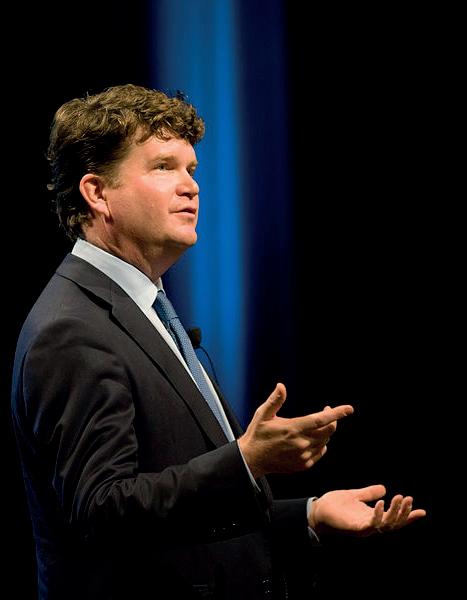
“
” I’ve been going to CF10 since first year to get my hangover sandwich



As the University celebrates a surge in the number of students opting to spend a year abroad, Gair Rhydd has received a handful of complaints regarding the handling of overseas study and work placements.
Te University has seen an increasing number of students carrying out work experience across Europe: this academic year, 105 students took advantage of the University’s international links, an increase of 144 per cent from 43 students in 2009/10.
“
The vast majority of lecturers acknowledged the fact that you were an Erasmus student and offered help and guidance
”
Examples of placements include marine traineeships, foreign language assistant and teaching assistant positions amongst others.
However a number of students who have worked and studied abroad have taken issue with the handling of applications and the lack of communication between the University and their prospective institutions.
“At times it would take up to a week before you could complete a single document due to working around nonsensical office hours and attempting to collaborate with several administrative parties such as Erasmus offices, university offices and course specific admin,” said a final year language student who spent last year studying at a European university.
“Once the initial complications of
the arrival and sign-up period had passed, things became significantly more straightforward. Te vast majority of lecturers acknowledged the fact that you were an Erasmus student and offered help and guidance if you approached them.”
Te student continued: “Te ineptitude of the administrative staff at the beginning of the year is more than compensated for by lecturers offering help, and by native students eager to help a foreign friend.”
Another language student who worked for a year in Europe as a teaching assistant had to seek medical advice whilst on placement. She explained: “Te Universty did not give much advice on insurance and I used the wrong insurance card. When the insurance company didn’t cover the bill I had to pay legal fees and the bill.
“Te University insurance also didn’t cover me for another treatment meaning I had to fly back to the UK.”
Te same student, who applied for the placement through the British Council, spoke about how the University didn’t check-in on her once throughout her time abroad to ensure the placement was running smoothly, but did commend staff who helped her with her teaching application.
Gareth Evans. a final year English Literature student who spent his
second year studying in an American university describes how Cardiff University sent him a pack containing general information, “but from thereon in I had no more contact with the ‘study abroad’ office.”
Lydia Kessell, a second-year language student who is currently applying for a work placement abroad, has a more pleasant work experience to report.
Kessell described how the ‘Year Abroad’ tutor advertised job opportunities on Learning Central and the paperwork was for the benefit of Erasmus rather than prospective employers “so it’s relatively simple to get a job offer although it might be more difficult if there is a salary involved,” Kessell said.
A language student who studied for a year in Europe warned: “Application processes are generally handled by the home university, however it is extremely important to keep aware of what stage of the process you are in to keep up with submitting certain travel/university documents required of you.”
Te University has recently introduced 60-day traineeships so that students might benefit from summer placements in addition to their staple Erasmus schemes.
Te University’s Vice-Chancellor,
Professor Colin Riordan spoke about the inclusive benefits of the work placements, commenting: “Not only do they provide students with ‘real world’ experience, but they can forge collaborative ventures with a range of institutions.
In turn, this helps us attract funding to transform innovative Cardiff ideas into Europe-wide research programmes.”
Departments benefit from having students study abroad as increased numbers of students who decide to spend part of their degree programme overseas attracts greater funding for their home department.
In response to the criticism voiced, the University encouraged students to report any queries to their home school as soon as possible. It was noted that sessions are held before students leave Cardiff to provide information and that there is a ‘Stay Safe Abroad’ section on the University website for further queries.
According to a spokesperson, for students abroad ‘pastoral care is the responsibility of the academic School’.
Tey also defended accusations that students receive little contact with the University, as it was explained that the ‘Global Opportunity Centre is in contact’ with students’ throughout the year.
AGP surgery has been launched on Park Place, as a key part of VP Welfare Faraz Alauddin’s manifesto.
“
Despite the scale of the development, Alauddin was able to open the surgery ahead of his propsed deadline
”
Te surgery, which is located in the Students’ Union Health Centre on 47 Park Place, has been created as a branch of the existing Roath House Surgery.
It is now open from Monday to Friday between 12.30 and 2.30pm. Appointments must be made using the appointment system and students wishing to register can pick up the relevant documents during open hours.
Tose already registered with Roath House Surgery on 100 Penylan Road can chose to see doctors at either location.
Te plan to create a campus-based GP surgery was described by the VP Welfare as his ‘biggest and more ambitious’ point on his manifesto. However, despite the scale of the develop-
ment, and earlier delays caused by construction work, Alauddin was able to open the surgery ahead of his proposed deadline on the 30th of June.
Te promise made to supply a GP on Park Place featured as a central point in the current VP’s manifesto during the 2014 student elections. Tis follows the succes of other manifesto promises including the promotion of the well-being team and campaigning to release exam timetables earlier.
According to the VP, the new GP will benefit students significantly by allowing appointments to be made between lectures and seminars.
“Tis means that students won’t be put off from going to the doctors due to long distances, so problems will be sorted out when they first start to appear”, he stated.
“It will lead to healthier, happier students”.
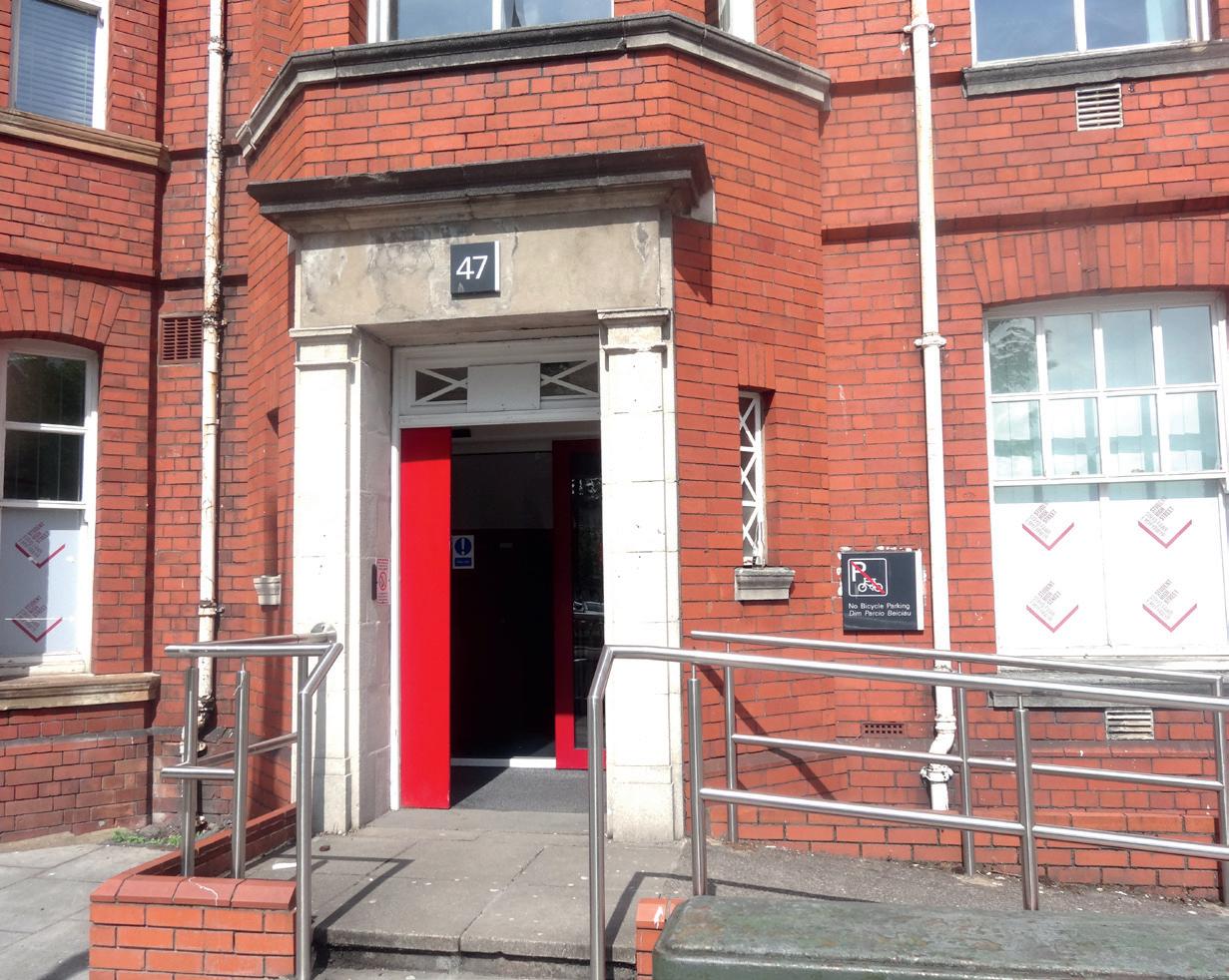
“
At times it would take up to a week before you could complete a single document
”Pictured from l-r: University of Latvia, Leipzig University, and University of Paris, all of which are available for study placements. Anna Lewis Katie Evans Pictured: Te Health Centre, 47 Park Place (Photographer: Katie Evans )
Reducing people to a sexual object regardless of gender has no place in modern marketing
ACardiff-based transport company has come under national criticism after launching a ‘sexist’ advertising campaign on the sides of its buses.
New Adventure Travel (N.A.T) received widespread attention after posting the company’s new campaign on social media on Monday, 11th May. The advert, created to promote a new bus route, featured an image of a naked woman accompanied by the slogan ‘ride me all day for £3’.
An accompanying advert saw the same slogan placed next to an image of a naked man.
The campaign came under fire only hours after its launch, as Cardiff community blog ‘We are Cardiff’ described the image as: ‘an absolutely unacceptable way of advertising a bus ticket.
‘It represents the commodification of a woman’s body and trivialisation of prostitution, and has no place in 2015.’
According to the Advertising Standards Agency, 45 complaints have been made against the advert. Stephen Doughty, newly elected MP for Cardiff South and Penarth, also took to Twitter to voice his ‘dis -
Despite the outrage caused, controversy was quickly rectified, as the bus company promised to remove the offending advert within 24 hours of its launch.
However, the company’s quick response wasn’t able to stifle national headlines as The Independent, Mirror and Channel 4 News among other media outlets picked up the story.
The advertising was featured on ten buses on a new route running between Pontprennau and Culverhouse Cross via Cardiff city centre.
In a statement, N.A.T apologised for the image and explained that the campaign was intended to make the ‘bus more attractive to the younger generation’.
It appears the company didn’t consider the reception the poster would receive from parents of the very youngest generation, as one angered mother took to Twitter to vent: ‘HOW AM I SUPPOSED TO EXPLAIN THIS AD TO MY PRIMARY SCHOOL KIDS??’
The campaign was described by the company as ‘a little tonguein-cheek’ but ‘in no way intended to cause offence to either men or women.’

However, despite the company’s apology, Women’s Officer Laura Carter has expressed concern over the comments made.
‘I’m glad that the bus company have responded quickly to the criticism and decided to take the image down but the fact that they were aware of the implications of their “tongue-in-cheek” advertising policy and still decided to pursue it is problematic’ she said.
‘I would want any woman in Cardiff to feel able to use public transport without feeling they were being objectified’, Carter continued.
The campaign’s intentions were also slated by media professional Miranda Bishop, after labelling N.A.T’s intentions ‘frankly embarrassing’.
‘Reducing people to a sexual object regardless of gender has no place in modern marketing’.
Cardiff University has seen a significant medical breakthrough in research investigating potential cancer cures.
Scientists at the University have identified a compound that could potentially be used to target aggressive tumour cells.
Te research, conducted through stem cell research, is thought to be able to help tackle cancerous cells responsible for breast, pancreas, colon and prostrate cancers.
Te news comes despite statistics revealed by a higher education think-tank suggesting that Welsh universities are lagging behind in scientific research.
The research is thought to be able to help tackle cancerous cells responsible for breast, pancreas, colon and prostate cancers
Using cutting-edge computer technology, the Cardiff team were able to identify a protein known to cause cancer stem cell maintenance and survival.
By identifying the protein, it is now hoped that work can be made to ‘deactivate the tumour’s self-defence mechanism’ and prevent regrowth.
As a result of the breakthrough, the discovery has been licensed to biotech experts Tizania Life Sciences, where it is hoped the research will be developed for use in clinical trials.
Te news was released after a deal was made with Tizania on the London Stock Exchange.
Te compound, named OH14, was developed by work conducted by both the University’s European Cancer Stem Cell Research Institute (ECSRI) and the School of Pharmacy and Pharmaceutical Sciences.
Te news follows after the same research team discovered a molecule capable of reversing the spread of malignant breast cancer last year.
Dr. Richard Clarkson, lead researcher of ECSRI said: ‘We are delighted to extend our relationship with Tiziana Life Sciences.’
OH14 is an example of a new generation of experimental agents designed to selectively target the pernicious stems cells within a tumour, thus improving the longterm prospects of cancer patients.’
Separate studies conducted by the University have also proved that prostate cancer sufferers live two years longer on average if offered chemotherapy.
Te results were released from an on-going study being held by Warwick and Cardiff Universities examining prostate cancer in 6,500 cancer sufferers.
According to the research, men with incurable prostate cancer live on average two years longer if treated with chemotherapy in addition to the standard hormone treatment provided.
Chemotherapy is currently only offered to patients if hormone treatment is labelled ineffective.
As a result, scientists have called for the chemotherapy, named docetaxel, to be given to men as soon as they are diagnosed.
However, despite both findings, Welsh universities have continued to come under fire for their lack of science-based research in
comparison to the rest of the U.K. and Europe.
In a report released last week, the higher education think-tank the Leadership Foundation has suggested that universities in Wales are currently losing out on significant funding in research grants due to a nation-wide shortage of academics working in science.
Although the think-tank noted that the quality of research conducted in Wales has improved ‘significantly’ over the last decade, it was noted that many studies were centred on arts and humanities subjects.
Compared to the rest of the UK, Wales currently employs 1.3 per cent less research staff within areas
involving clinical medicine, and 2.2 per cent less in engineering fields including product, aero and mechanical engineering.
Te biggest shortage of research staff was found within the maths department, with 2.4 per cent less staff than UK university counterparts.
In a combination of staff from all STEM subjects, Wales faces a staff ‘deficit’ of over 600 people.
According to the report, Wales is placed behind both the rest of the U.K. and many European countries in terms of total gross expenditure.
It was noted that Cardiff University currently receives 49 per cent of all Welsh universities’ research income.

Different ways to relax during revision
(Sources: Dani Vázquez; Dyanna Spa; liipychick. co.uk)


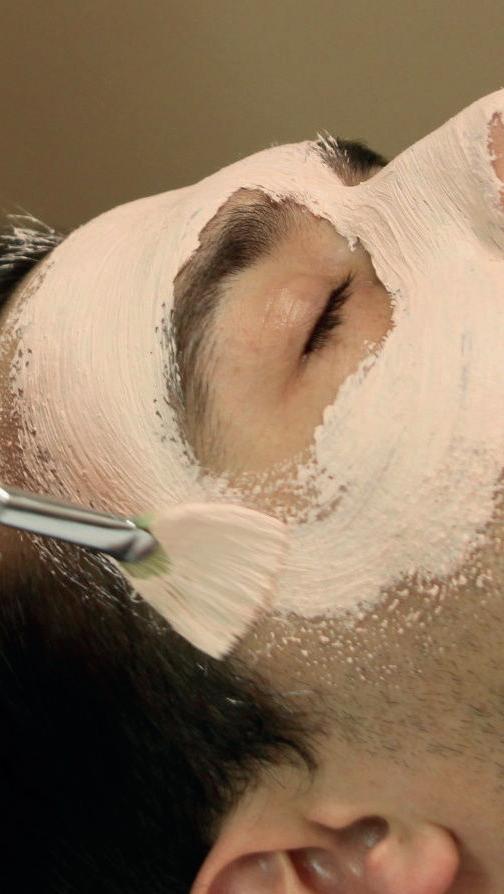

Here’s our handy guide to getting the most out of revision and improving your concentration
Kirsty Fardell
For most of us the revision period consists of eating loads, panicking and staring blankly at notes, with regular breaks spent browsing Facebook or Yik Yak. All of this is usually done from behind a desk in the same library every day, seeing the same people with the same routines.
Spending a lot of time in the library may make you feel like you’re doing a lot of revision but when you add up the actual time you spent working compared to the time spent procrastinating, you will panic even more.
One of the reasons it’s so easy to get distracted is due to the lack of variation in your routine. Trying to do the exact same thing every day in the same environment can get really boring very quickly, so a proper revision break is worth including.
Stepping away from your work breaks the boring cycle and will benefit you in the long run. Spending some time in a different environment or doing something you enjoy will make sure that you get your procrastination out of the way.
That way, when you go back to your revision, you’ll feel more re-
freshed and focused and spend more time actually learning rather than staring at random squiggles on a page.
A great option for a revision break is doing some exercise. This doesn’t have to mean spending an hour in the gym. Go for a quick 20 minute jog to get some fresh air and a change of scenery. If jogging isn’t your thing, pair up with a friend and just go for a good walk and a chat.
A quick and easy way of re-energising is by getting yourself a cheap skipping rope and having a skip during your breaks. Get your house-
mates involved, create a long skipping rope and do the rhyming skips you used to do in the primary school playground. You will not be thinking about revision at all.
Getting out of the place you feel bored in for a while will make you feel more refreshed and ready to continue revising when you get back.

What do you think?
Have your say: advice@ gairrhydd.com
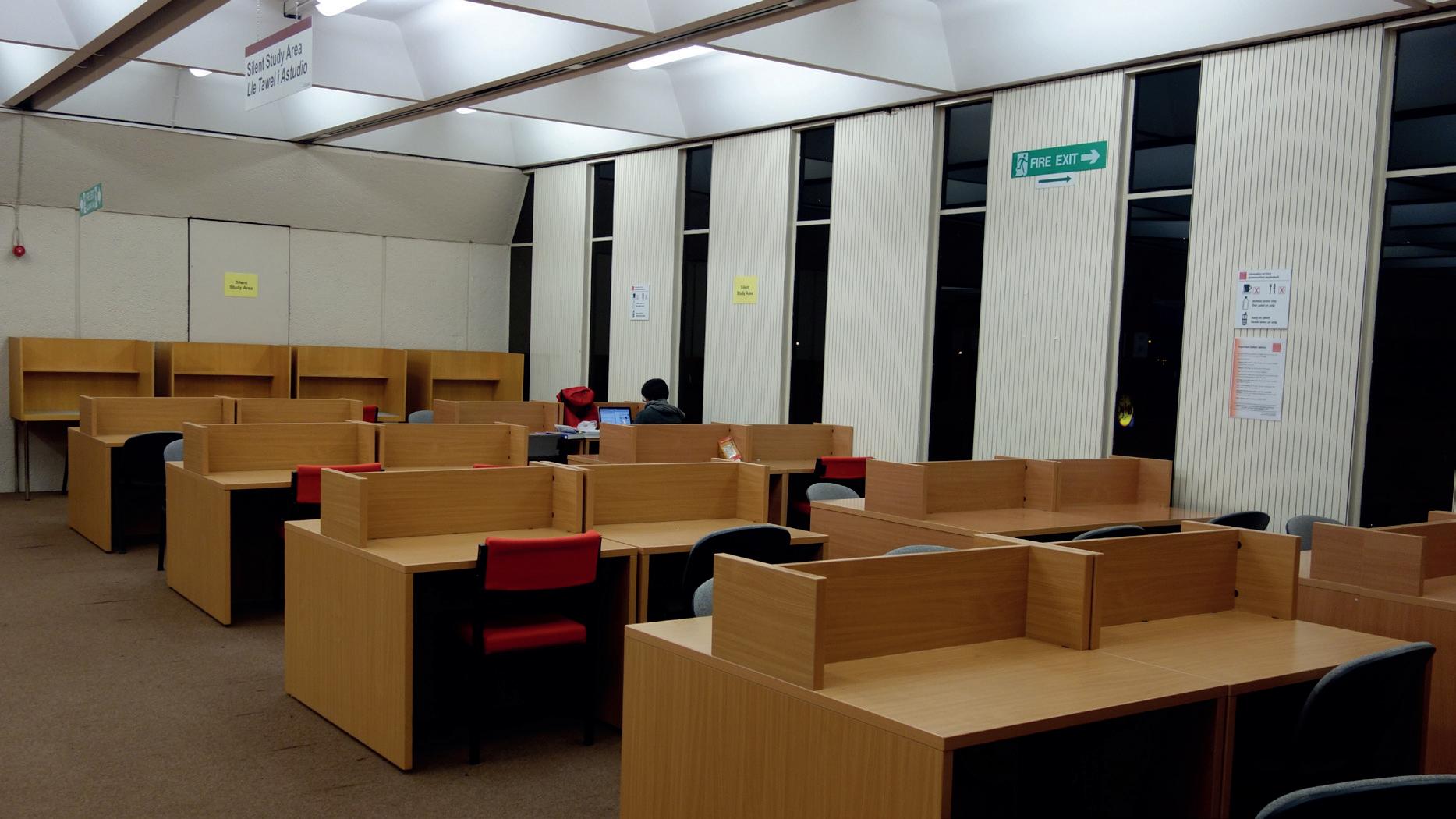
Those who revise at home will know how messy your room can get during exam time. The thought of washing up your pile of dishes or taking your bin out may seem like the biggest chores ever and will just waste precious revision time but having a messy room is only going to distract you further.
Use your breaks to do a tidying task you’ve been putting off. Maybe on your next break you’ll change your bed sheets, or put your clothes away.
By breaking up your revision thoughts you won’t be so bogged down with all those PowerPoints.
Don’t fall out of touch! Stay in regular contact with your friends at home and keep calling your mum, even just for a rant. Use your breaks to give someone a Skype and talk about anything not exam related.
It may seem like a great way to relax, but doing something on the computer is not going to help. Most of us turn to Facebook, find a video on YouTube to watch, or want to catch up with a TV show you missed.
Before you know it you’ve watched a whole film or refreshed your timeline a thousand times. Do something to get away from the computer.
Schedule a revision timetable to suit your own concentration span
Well-used revision breaks can get rid of the boredom and give you motivation “

Continued from the previous page
Take the motto ‘work hard, play not-quiteso hard’ and you’ll strike the right balance between revising and breaks
If there are a few websites you just can’t help but browse during revision, then a good solution is downloading ‘Website Blocker’ from the Chrome store, which will work on Google Chrome.
You can add the sites you want blocked and set the time they will be blocked for. So if you know you’re going to try and revise from 9-5 you can block the use of Facebook during these hours. That way you won’t be able to go on the sites that cause your usual distraction and instead will do something better in your revision breaks.
From changing your environment you can reduce your distractions. Most of us find a specific floor in a specific library, and have a favourite corner of it that we like to sit in every day to revise. This is just going to bore you, and if the library is part of your school then chances are its going to be very busy with everyone on your course and you’re going to bump in to a lot of people you know.
Therefore, try changing libraries. There are quite a few within a close proximity that are worth exploring, like the science library in the Main Building or Bute library. Have a look at the list of libraries with their opening times here: http://tinyurl. com/nsre765
An easy way to get good revision breaks is to schedule them. By drafting a revision timetable you will know exactly how much time you are due and when, so you don’t have to feel guilty for taking a break. Everyone’s attention spans are different so everyone’s timetable should vary. If you feel that you’re able to concentrate for a solid hour then schedule your timetable with 10-20 minute breaks every hour. But if you can only revise for about half an hour before you get distracted then stick with half hour revi-
sion slots followed by a 5-10 minute break. Even plan what you’re going to do in your break too so you’re not waisting time looking for something different to do.
Following the advice in last week’s Gair Rhydd on health eating, plan your breaks to suit snacks and decent lunches so that you can continue revising well afterwards.
Use ‘getrevising’ online to create an easy revision timetable, so you’ll always know what’s coming next and not spend ages trying to decide. Find their timetable tool at: http:// tinyurl.com/qdatbe7.
Many students think it’s best to continue working throughout the night. But then the next day you know you’ll feel too tired to do any proper work, and when the 9am exam comes around you’ll feel shattered throughout.
So schedule your days like a normal work day – get up early and start revising in the morning and finish at a reasonable time so you can have a chill, watch TV and get a decent night’s sleep.
Don’t stop yourself from having fun. The revision period doesn’t have to be entirely spent staring at notes, colour coding and reading.
Work hard in the day and allow yourself to have fun in the evenings. Perhaps stay away from nights out that will inevitably waste the next day, but still try and organise a meal out with your friends or a trip to the cinema. Even an afternoon at the park in the sun, or a barbecue in someone’s garden will liven things up.
By giving yourself some down time it will improve the revision period by not being so boring and dull.
Having something to look forward to is a great way to motivate your revision, and they should all take place in your breaks with no discussion about anything exam-
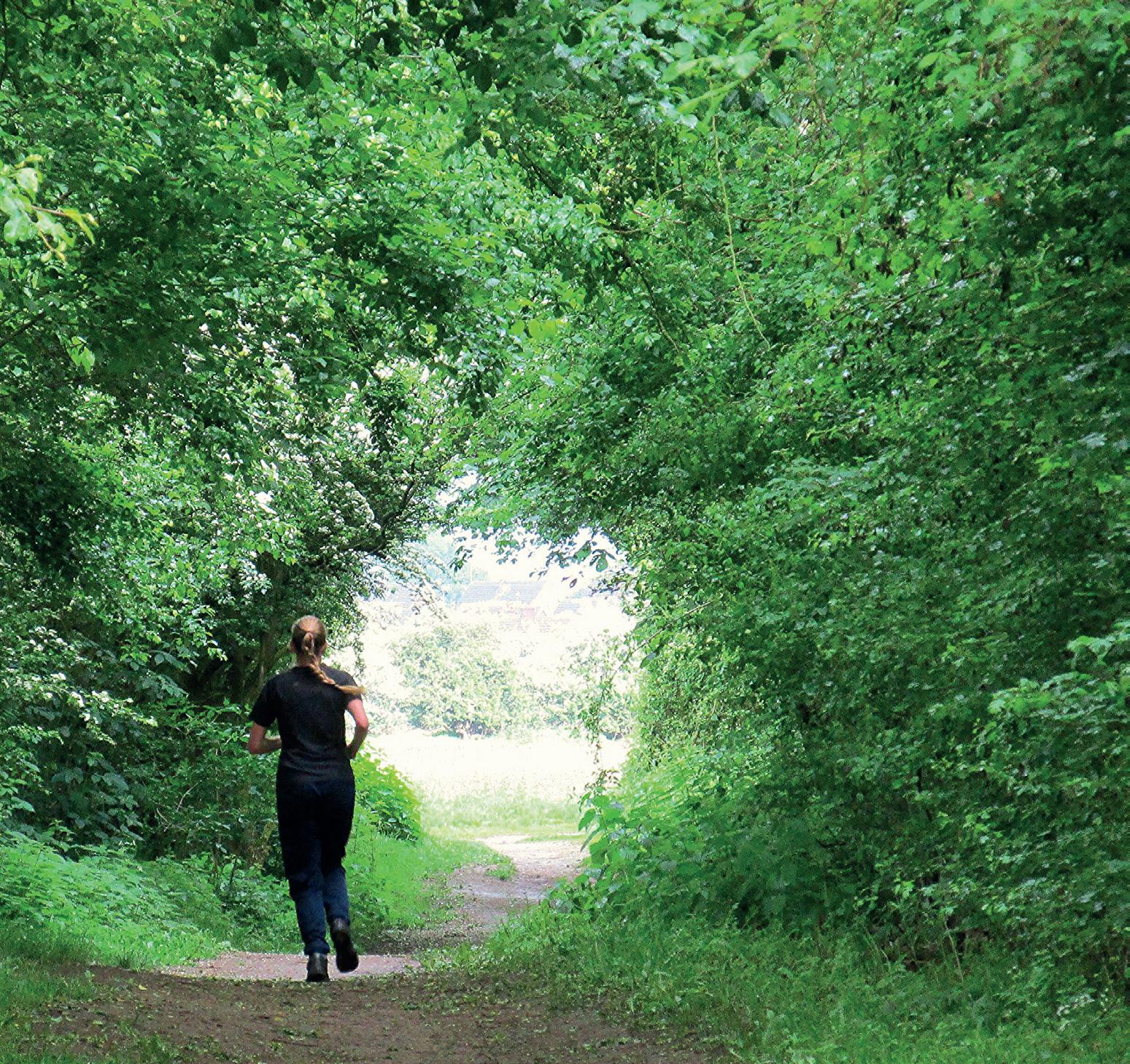
related.
Doing something you enjoy in moderation will also motivate your revision. Say to yourself that you will be allowed to do your favourite thing after you have revised for three hours will make sure you get your head down. Maybe it’s playing one game on Fifa or putting on a face mask while watching an episode of Friends – limit yourself to one thing you enjoy doing and stick to it.
Breaks during revision are so important to keep up your energy lev-
els and to stop you feeling like you’re drowning in notes. They should be considered part of your revision. Take up the motto ‘work hard, play not-quite-so hard’ and you’ll be on the right track. Still allow yourself to have fun, still talk to your friends and family and still spend time doing nothing. It will feel better when you’ve earned it.
Most importantly, good luck. For lots of us this could well be the last ever time spent revising. And if that doesn’t motivate you to do well, then nothing will.
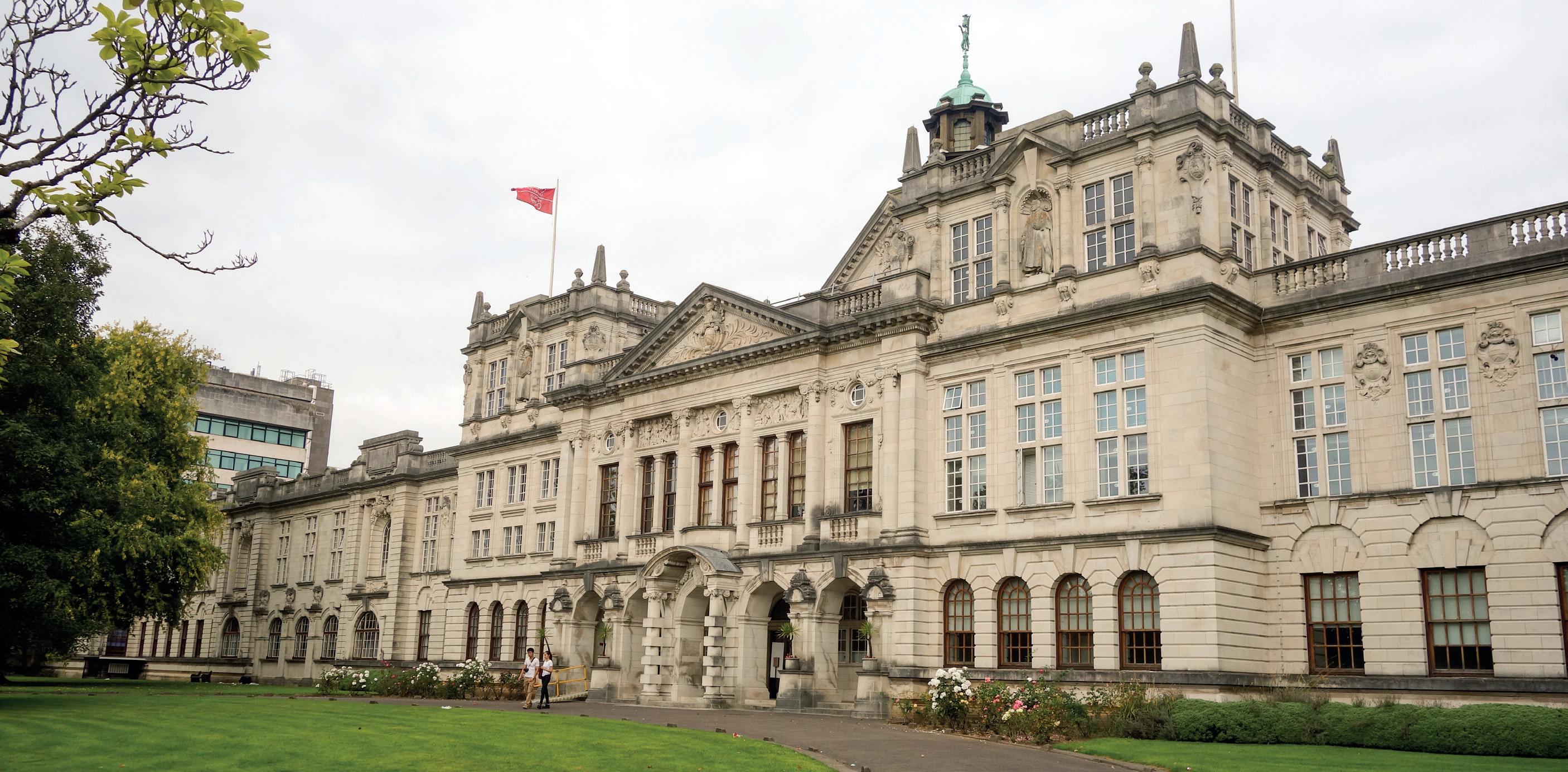
C“ ”
Why should a university, without the facilities to keep animals, claim to be holding a ‘petting zoo’?
at-calling is pretty common in our society, let’s face it. I’m sure you don’t appreciate strangers coming up to you and touching you, either. So why do we love doing it to animals to relieve stress? Humans aren’t exhibits, and neither are animals. I already find the idea of zoos odd (particularly after seeing a polar bear looking like he would rather eat his own paw than be in his enclosure). Why should a university, without the facilities to keep animals, claim to be holding a ‘petting zoo’? Taunting animals and putting them under undue stress doesn’t sound like much fun to me.
Te annual petting zoo outside the ASSL is soon to return, and I’ll be avoiding it like the plague. I remember visiting in my first year, for something that sounded like a laugh, but when I arrived I saw the conditions that the animals were left in and I was shocked. Minimal food and water were left by an assortment of terrifiedlooking animals. I took photos with my
housemate but afterwards realised how strange this concept was. An animal was locked up to relieve my stress, while I had given no thought to how it felt being there. Surely a continual line of strangers coming up and petting you on the head isn’t much fun at all. My sister is training to be a vet and told me how animals display fear – and it’s not just through biting or scratching. Harry Fisher, president of PAWS, the University’s animal welfare society, said: “As an animal welfare society we don’t condone having animals kept in such a confined space being spooked by the loud noise of a crowd. Although I personally agree that animals and stress relief go together perfectly, I believe that there are better ways to go about this. A possible alternative would be a well-run animal sanctuary, as we are lucky enough to have a fair few in Wales.” I certainly wouldn’t like to be put into a situation where I feel uncomfortable, and I don’t think the animals enjoy it all that much either. For those who disagree with this point,
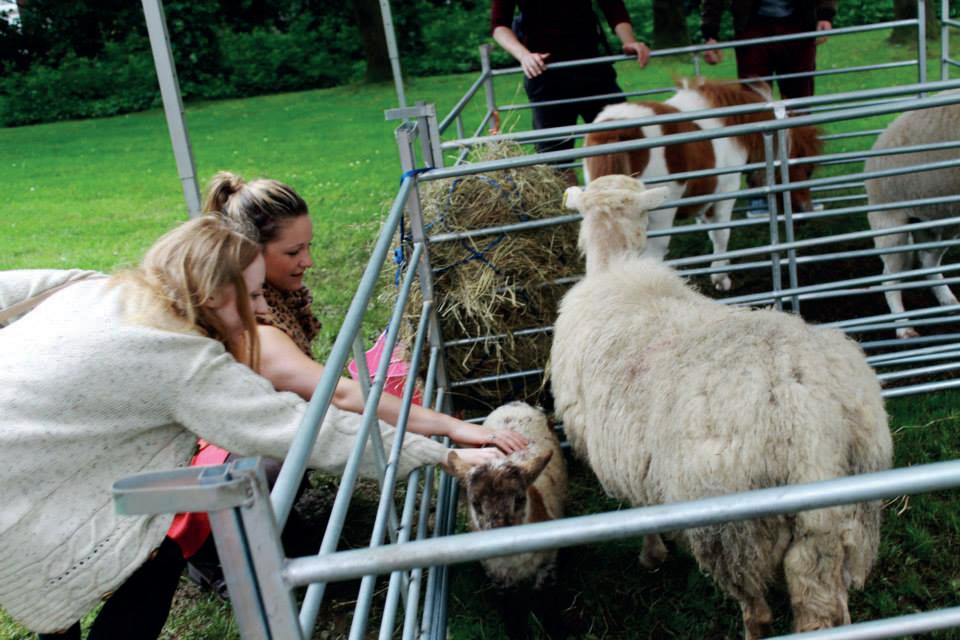
think of this. Having random students, who probably haven’t showered for three days, come up and stroke your head probably isn’t all that great. Cardiff isn’t the only university to organise stress relieving programmes throughout the exam period. Tat said, other universities undertake them so that the animals they provide are treated with far more respect. Te University of Southampton, for instance, provides puppies for its students to pet. Tey work in collaboration with the Guide Dogs for the Blind Association, and limit numbers of students around the puppies at one time, and provide a room where the puppies can have a break from the strangers surrounding
OThere was a certain sense of déjà vu about these anti-austerity protests
Pictured: “Look how cute ewe are!” (Source: Cardiff Students)
them. So why can’t Cardiff do the same, and give the animals even a second thought? Te University of Kent give out free fruit and water – why can’t Cardiff do that instead, and spare the cruelty of animals in a petting zoo. So not only are the animals stressed, but surely the University realise that we’re not school kids anymore. As nice as the thought is, petting a horse simply isn’t enough to relieve my stress from exams. I hate exams. Always have done, always will do. Teach me how to revise more effectively and give me free coffee (the side of Revision Aid that does work) to stop me using the ASSL as a napping area. But don’t make me pet a bloody animal, I’m 21 years old.
A spate of anti-austerity marches will not affect our Tory government
pposing the looming austerity imposed by the newly-elected Conservative majority government matters. I care deeply about protecting those in our society who need the public services that will inevitably be cut, and ensuring that those who are less well off than myself have the means to look after themselves.
However, in the age of the online petition and Russell Brand’s school of political protest, I am finding that marches and rallies against political forces have become trivialised vanity projects that are ultimately not changing the minds of those in power. Whether you like it or not, political marches just aren’t working.
Standing in front of a statue of Aneurin Bevan, the Welshman who spearheaded the establishment of the NHS, Charlotte Church bellowed through a microphone: “Without the Lib Dems to centre them, they’ve got no restraints; nothing to stop them from destroying our welfare system, selling off our house service, and even making constraints upon our democracy.” Welsh singer-songwriter Church was referring of course to the Conservative party, whose 331 seat majority in last week’s general election ensured that they are no longer sharing power with the decimated Liberal Democrats. She
has become the face of the peaceful protest that took place on Queen Street last weekend, one of a number that took place across the country in response to the election result.
Tere was a certain sense of déjà vu about these anti-austerity protests. Te same sort of rallies have been taking place for years, but the government against whom the people are protesting against are giving very little value to what their constituents are saying.
Tis maybe doesn’t come as a surprise; after all, when was the last time a politician actually listened to those whom they represent without
it being for the benefit of their own career or party first? Te Tory government are set on cutting the deficit using public sector cuts, and I feel as though no amount of foot-pounding on the streets of the UK will make a blind bit of difference. For example in 2010, following the election of the coalition government, thousands of former, current, and prospective students took to the streets to demonstrate against the trebling of tuition fees. Tuition fees remain trebled. So what do these protests actually achieve? Looking back, through recent years, it is hard to remember when a group of people swamping

our roads has ever provoked significant political change. On a worldwide scale, the Arab Spring of 2011 and the resultant political reform was born out of public unrest, but that unrest manifested itself on the most part in blood-thirst and violence in response to truly oppressive dictatorships. Perhaps the answer ultimately is in violence then; it worked in North Africa after all. However in destroying, setting alight and stealing, a protest becomes just as damaging as what it is trying to oppose. Te government won’t listen because there are not tangible, physical consequences of austerity (yet). Tese consequences will ultimately rear their heads in ten, twenty, thirty years down the line, and will go beyond shocking figures such as visits to food banks topping 1 million in 2014/5. David Cameron is quick to shy away from questions when they involve the potential suffering that his party’s policies could cause. Protests will continue, and people will continue to care and anger, will continue to grow for as long as the government seem to neglect people who need help the most. However, I can’t help but feel that in the age we live in, there is nothing other than a quick ego boost resulting from taking to the streets.
Having random students, who probably haven’t showered for three days, come up and stroke your head probably isn’t all that great
Pictured: Te police struggle to cope with protests - but despite the growth of the protest movement, little can be done with it. (Photographer: Stefan Wermuth, Reuters)
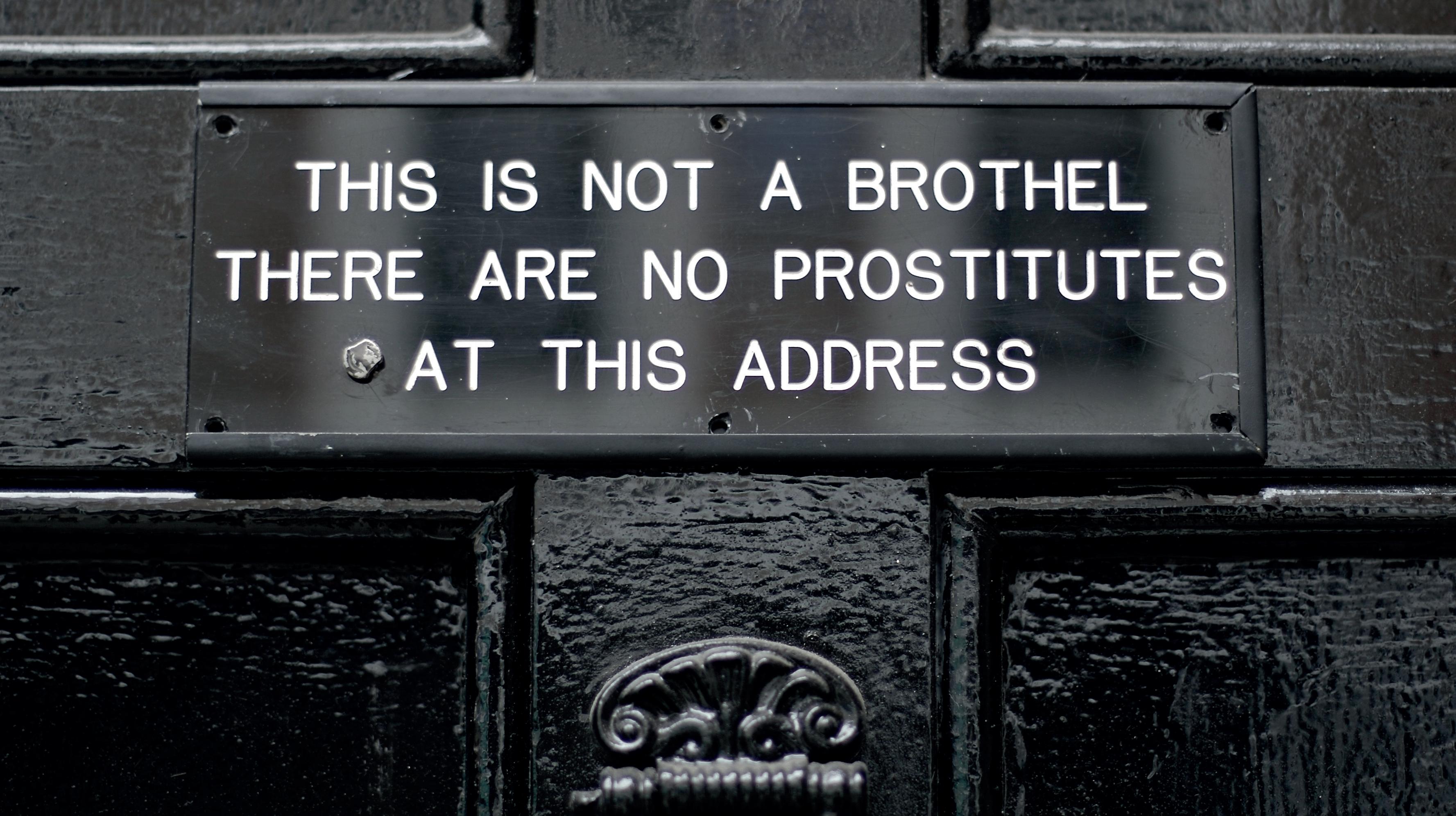
van den BentKelly
The question that needs to be answered is if this is the correct method of helping sex workers
“The world’s oldest profession” is what, in an attempt at glamorising it, prostitution is considered to be. Yes, in a society where sex sells, nothing sells it better then the act itself. But in a profession that can see vast profits worldwide, Northern Ireland will next month make it illegal to pay for sex - criminalising individuals who use prostitutes. Tose who pay for sex will be prosecuted in an attempt to end the demand of prostitution.
Tis isn’t anything new. Both Sweden and Norway already have laws that enact a similar disciplinary measure. But despite the overwhelming amounts of ‘best practice’ in their politics Scandinavia enjoys - this law simply can’t be included in that list. Te issue is that criminalising prostitution won’t stem the demand of ‘cash for sex’.
Prohibition during the 1920s in the United States saw a thriving illegal scene of alcohol production; and strict charges on drug use and possession today clearly do not reduce their occurrence. Banning something and enshrining that ban in law simply doesn’t work for such things.
Te question that needs to be
answered is if this is the correct method of helping sex workers. And the answer is an emphatic no. What has to be promoted instead is both education and welfare. Is making paying for sex illegal the best route for producing the best possible welfare?
In all honesty, that is pretty doubtful. It risks too much by sidelining the important issue of confirming that people involved within the sex trade are not a product of sex trafficking. It targets individuals rather than the more pressing issue.
Te Students’ Union’s women’s officer incumbent stressed in her manifesto that she plans to work with students who are sex workers to reduce the stigma associated with them and promote their rights as sex workers - and she is right. What use is there in disregarding those who are a part of the sex trade? I believe there is no denying that there are individuals in the sex industry who are content in their profession, work in a safe environment and maintain an excellent standard of living. But there are many that do not. And introducing this law simply will not cater to giving these individuals aid. What also needs to be done is to
ensure that individuals don’t see the sex trade as an aspirational career –no one should be forced to sell their body to fund their survival. Student loans should cover living costs and no students should have to use the sex trade to survive university. Criminalising those who pay for sex could potentially endanger those who work in the sex industry.
All this law will set about doing is further making prostitution, and the individuals within it, a taboo subject. Tat awkward, dismissive attitude that society can hold on certain subjects will not be diminished at all. Te stigma of being a prostitute will become even greater in Northern Ireland. What has to be focused on is protecting sex workers more extensively. Allow them to have the free and no strings attached choice to either continue their engagement in the industry, or have the ability to leave it without further consequence.
Identifying and then appreciating that selling sex won’t stop should result in a shift of prioritiessomething that the Northern Irish government seems to have neglected. Accepting that as fact liberates you to addressing the welfare of prostitutes.
Prostitution will undoubtedly continue in some form - criminalising this activity seeks only to stigmatise their profession further and isolate prostitutes further away from proactiveness on providing resources that actually help and support these people. Te fear is that this legislation will further deteriorate situations that some prostitutes work in - making them even more vulnerable.
What the Northern Irish government is failing to do is have full concentration on protecting human dignity. Forget attempting to vilify both sex workers and their customers - maintaining the safety of those who choose to stay in the sex industry, and assisting those that wish to leave it with genuine, practical support is more important.
Perhaps I sound slightly naïve, but if two consensual individuals engage in a lawful act of sex, and an exchange of money occurs at the completion of this activity, does this honestly merit criminal prosecution? What instead needs to be ensured is the protection of these individuals, and if they want a ‘get out’ from this career, then it can be offered to them with no intimidation or fear.
Making it clear that prostitutes are not in residence (Source: Tom Coates, Flickr)
All this law will set about doing is further making prostitution, and the individuals within it, a taboo subject

Last week, a Cardiff travel company came under fire for a sexist advertising campaign. Feminist campaigner Georgia Lubrani discusses its real meaning
EXCLUSIVE
Georgia Lubrani
Iam angry as I type this. It probably doesn’t help that I’m sat on the train listening to angry music, but unfortunately, I’m having to take a couple of days out to recover from SexyBusGate. I don’t want to write an essay on why the advert is wrong. I want to explain to you why the advert is sexist and offensive, why the male advert must be considered in a different light, and finally, I’d like to expose you to just a little bit of what it’s like to be a woman speaking up for feminism in the age of Facebook.
Here’s a bit of background for you. My role in the removal of the bus advert was this: I saw the photo, I shared it to my Facebook, and I provided a link for people to complain to the company. As with Dapper Laughs, I was merely sharing and exposing something I disagreed with.
We are living in a society where women are objectified prolifically and senselessly, and yesterday I snapped
Te advert, for the following reasons, is incredibly offensive. Firstly, it is objectifying women in a space where it will be viewed by a vast number of people, children included. People often say to me, if you don’t like this or that, don’t look at it. Unfortunately, we exist in a society, where if I didn’t want to see or hear anything sexist, I’d be living in a dark room. No job. No television. No radio. No magazines, no friends. I’d need earplugs, oh and I’d be blindfolded.
We are living in a society where women are objectified prolifically and senselessly, and yesterday I snapped when I realised we can’t
even get the bus without seeing this bullshit. To imply that woman can be ridden all day removes her sexual agency and choice, and suggests she is akin to a bike, a horse, or a bus. Tis is ignoring altogether the fact that public transport is a notoriously troublesome experience for women travelling alone anyway. Furthermore, we live in a world where women all over the world are forced into prostitution. Even those that enter the industry by choice aren’t cared for or considered as humans by the government or vast majority of society.
Is it really just a joke when these are real issues? Can you really say we’re getting offended over nothing? Ten it came to my attention that there was an advert that was ‘exactly the same’ except it depicted a male. I knew what would happen, and it did. Te men came for me in hordes on the Internet, gleefully telling me that I was wrong, the advert wasn’t sexist. Tis wasn’t an issue for feminism; this wasn’t an issue for women. Men have it just as bad.
What I had to explain, and what I always explain, that I get tired and angry and bored of explaining, is that sorry guys, it’s not the same thing. Yes the advert is identical, but we are ignoring the context if we say that they are the same. Male objectification is still somewhat of an anomaly. Objectification of any kind is bad, don’t get me wrong. But unfortunately, as with the Protein World advert, these depictions of
women are a signifier of a greater landscape in which women are hyper sexualised in the media, policed for our appearance, and shamed for our sexual decisions. At the end of the day, men aren’t oppressed because of their gender. Yes, the patriarchy is damaging to men too, but realistically, they are privileged in this society.
So no, I’m sorry, the advert is not the same. Also, it scares me that, in my experience, few men speak out against the widespread objectification of women, but will be the first to yell that a male is being objectified too if it allows them to counteract the point of a feminist.
Tis leads me to my final point: how to react to a woman speaking up for women’s rights. I am very open about my beliefs; I’m frequently called ‘outspoken’ or ‘opinionated.’ But I tend to find these words refer to me only because I am a woman, and apparently somewhat defying the norm by speaking up, by not backing down.
In the course of Dapper Laughs, supporting women’s rights to a legal and safe abortion, and now the bus advert, I am inundated with messages on the Internet. I’ve been threatened online with a gun. I’ve been told I need a ‘good, patriarchal spanking.’ I’ve been called ugly, boring, sexist, and a ‘glorified c*m-dumpster.’ I’ve been the victim of an online slutshaming campaign. Just for standing up for women.
Most people will say that I should
ignore the Daily Mail comments. And I do, for the most part. What becomes most difficult to deal with is male acquaintances and friends who pop up to argue with me about just about anything they can with regards to feminism. Tey will use ‘logic’ arguments. Tey will post me copied and pasted extracts of UK law. Tey will mansplain and send me links to dictionary definitions of feminism. Tey want to debate me, but they never want to listen.
Unfortunately, they don’t understand just how difficult it is to stand up for what you believe in. Tey don’t understand that I spend all day everyday defending myself and my opinions. Tey might seem curious, might seem well intentioned; but at the end of the day, there is no onus on us to explain to men why something is sexist. We don’t have to debate every single one of you for feminism to be a valid cause. Please stop pointing out what you believe to be hypocrisies, and just sit back and listen to women. We are trying to create a space for women to stand up and say, actually, this isn’t ok. As it stands, this type of reaction is turning this space into a battleground. It really wears me down.
As I type this two days later on the train home, the angry messages have subsided for now. I feel it’s only until the next time. I’m just hoping that some time soon, people will be more thoughtful if they see a woman standing up for herself. It’s hard for us, please don’t make it harder.
Te offending advertisement
Source: Guardian
We don’t have to debate every single one of you for feminism to be a valid cause






May
Legend –
Bob Marley Tribute
24/05/15, £13 ADV
June
Young Guns
04/06/15, £12.50 ADV
July
Karyn White
11/07/15, £20 ADV
September
Mark Lanegan Band
04/09/15, £17.50 ADV
October
Peace
03/10/15, £15 ADV
The Staves
03/11/15, £16 ADV
Everything Everything
07/11/15, £17.50 ADV
November
Happy Mondays
29/11/15, £28.50 ADV


February
Fun Lovin' Criminals
18/02/16, £23.50 ADV

EExam season is terrible because nobody wants to drink, go outside, or even talk to you, because they’re all busy attempting to absorb useless information
xam season is upon us, and everyone is suffering. Students are constantly teetering on the edge of mental breakdown, the usually teeming clubs of Cardiff are abnormally barren, and there are now so many people trying to find new ways to procrastinate that Yik Yak has now consumed us all. Even for people like me with no exams (thanks JOMEC!), exam season is terrible because nobody wants to drink, go outside, or even talk with you, because they’re all busy attempting to clumsily absorb useless information from poorly made PowerPoint slides. And also, because they hate you for your freedom.
You probably read those last two sentences with total hate in your heart, and I can’t really blame you for that. I mean, there’s a chance that you’re reading this in the ASSL because your phone is dead and Gair Rhydd is literally the last available thing to distract you from the crushing inevitability of failure (apart from Quench, but come on, who reads that?), and you’re enviously picturing me writing this in the quiet confines of a lamp-lit reading room with many leather-bound books, without a worry in the world. Of course, you’re totally wrong. Te light from the
roaring fire eliminates the need for a lamp. You prole. But I’m not mad at you, dear reader. I feel only sympathy for your plight. Not because you have to do exams, after all, exams are an inevitable monster that must be slain on the path to further glory. No, I feel sorry for you that no matter how much revision you do, your result is going to be a total crapshoot. It’s true. No matter how many different colour highlighters you use, no matter how many post-it notes you stamp around your room, no matter how beautifully you re-write your notes for the seventeenth time, your grade will be decided by an blind monkey throwing flaming knives at a giant spinning dartboard.
Why am I so certain of the uncertain? Because university exams are totally unpredictable animals. You might get told in advance about questions that are likely to come up, or you might not. You might have past papers available, or you might not. You might be given feedback after the exam (LOL), or you might not. Tere are so many variables that go into university exams that make them damn near impossible to prepare for. Compare these to your A-Levels, and the contrast is clear. At sixth
form, every day after January was spent gearing towards exams. You knew damn near everything about the paper you were going to be sitting. How many questions there were going to be, what was likely to come up, and in one instance I even knew the head examiners name. I still have no idea why my history teacher thought that knowing the head examiner was called Colin would help me, but it was a perfect example of the sort of thinking that became so prevalent around exam time. Te sort of thing where, in the event that we all failed, our teacher could turn to our head teacher and say, “I even told them about Colin! Tere’s no saving these kids, they’re fucking hopeless.”
Exam culture at secondary school level is a problem, and it’s only now that I live in a world without Colin, that I realise this. It’s not necessarily a knowledge problem, because the first year in most courses is just re-teaching you the stuff you forgot at A-Level, because Freshers’ Week eliminated half of your mental faculties. It’s a problem for students because the focus is put on the exam, and not the subject. Tere’s no real incentive for further exploration or learning. Why would you bother, when all you’re trying to do is jump through hoops to
meet certain criteria that you knew about six months beforehand?
Of course, once you arrive at university, this mentality is a thing of the past. Exploring your chosen subject beyond the confines of lecture theatres is encouraged, and would probably be mandatory if such a thing could be effectively enforced. As a result, if you want to do well in your exam, you’re going to have to know everything you’ve paid £9,000 a year to learn. Damn it all.
Tis isn’t necessarily a gripe at how difficult university exams are. University is meant to be both difficult and intellectually stimulating; shifting the focus to exams rather than the content of your subject would defeat the entire point of a university education. However, the university could perhaps be more transparent in terms of the way exams are marked. Currently, logging onto SIMS and scrolling through a list of numbers like it’s Te Matrix is pretty cold, and doesn’t offer students anything in the way of feedback. Because as anyone who’s been there will know, it’s tough to look at a low number on a screen, and not think that it was something to do with a dartboard, some flaming knives, and a monkey that can’t see properly.
Tat familiiar feeling of fear and loathing dawns on another group of students (Photographer: Patrick Domingo, AFP)
There’s no real incentive for further exploration or learning
tweet us @GairRhyddPol mail us politics@gairrhydd.com or visit us online at gairrhydd.com/politics
Did your vote make a difference?
Te UK is facing an electoral crisis: a third of people aren’t bothering to vote for anyone, and of those that do only a third get their chosen government and many are spoiling their ballot. Tere is no perfect way for democracy to work, but it could function better than this.
It is clear that the electoral system is no longer fit for purposeWhen speaking to voters I regularly heard comments from voters across the political spectrum such as: “What’s the point in voting, if my vote won’t make a difference?” “Tere’s no point in voting for anyone but the Conservatives where I come from.” “If I don’t vote it probably won’t make a difference.”
In part because of these fears, around fifteen million people did not vote, despite having the chance to. Tey could have made all the difference, especially in the key marginals. Te Tory majority in the election was decided by only 900 voters in the top six Tory marginals. Only 900 voters out of an electorate of over 46 million decided the fate of the country for the next five years, whether you like it or not this cannot be a fair system. UKIP, whether you love them or loathe them, achieved almost four million votes, yet only one MP, yet at just over double that Labourwith nine million votes got 232 MPs, and this is a problem.
Voting reform is needed, or voter apathy will increase, especially among the younger generation. Te government and the press need to listen to the protest voters who spoil their ballots. A week after the election and I could get local results on several sites online, yet I could not find the number of spoilt ballots for every constituency in Wales, their protest is being disregarded and forgotten: we need change.
It seems difficult to imagine that the Green party and UKIP could agree on
something, but both parties have now spoken out on our broken voting system. Green Party leader Natalie Bennet told the BBC “we have a deeply unfair voting system.” She went on to say, “What we need, and what I suspect we’ll see, is a huge public campaign.” Despite first past the post being beneficial to the SNP, Nicola Sturgeon said before the election she would vote in favour of reform.
Te UK held a referendum in 2011 on AV but rejected it firmly, ending the voting reform discussion for some. Te NUS campaigned against AV, stating it was even worse than first past the post, calling for a fairer PR voting system instead. Many political observers such as Owen Jones, argued that AV should be rejected to get the reform they wanted - PR.
PR has been talked about a lot in the past few years, and will be discussed even more in the years to come I’m sure, but how would it work? Tis voting system has many variations, but all aim for the same objective; the proportion of votes the party gets, reflected in its number of MPs, making every vote count, eliminating tactical voting. As you can see from the charts below, a PR voting system would represent the vote share far better than the current system. As it eliminates tactical voting it is unknown what the result would be under PR, but the Electoral Reform Society has shown that the Conservatives may still have been the largest party, but with 75 fewer seats, and would need to be in a coalition with UKIP to rule.
Te current first past the post system is designed for two parties, instead of an array of ideas that we see in campaigns today, and the voting system needs to be changed to reflect this.
Defenders of the current system however emphasise its ability to deliver a majority government, and keep members responsible for local issues


as well as national ones. British people appreciate stability and are unused to coalition governments, although these are common abroad. Germany, for example, has almost exclusively been governed by coalitions, but has only had one early election.
Next year, Wales will be heading to the polls for elections for the National Assembly, which uses a mixed proportionality system. In the assembly, there are 60 seats, 40 are decided by the constituencies via first past the post (like the Westminster elections), and the other 20 are decided on a regional list basis. Te regional top up system aims to provide seats proportional to vote share. Tis means it is very difficult to get a majority, and it has never been done, meaning parties must work together and share ideas to provide effective government. However, this does not make it impossible, as the SNP showed in 2011 getting a majority in the Scottish Parliament.
Next year’s assembly, if this election’s data is anything to go by, we are in for a six-party assembly: unprecedented for such a small chamber. Te latest polls expect even the Greens

will get a seat, and UKIP five.
However, believers in voting reform would argue that a better voting system would lead to a better turnout, but this may not necessarily be true.
Te UK seems to be struggling to keep voters engaged in politics with a longterm decline in voter turnout since the 1970s. A new voter system may not stop this decline, but it may slow down this decline and make people have more belief in the power of their vote.
Many MPs believe that MPs represents their entire constituency no matter how large a majority they get, but this is not always true. A high profile case from 2009 saw a constituent taking their MP to court for ignoring his letters.
Over 200,000 signatures for electoral reform have been collected in just a few days after the election. It is hoped if people campaign they will bring about change.
Te Tories therefore need to make a comprehensive review into our whole voting system and the full responsibilities of Member’s of Parliament to their constituencies.

Sign the petition at http://chn. ge/1JwJpZQ
“” Undecided and unsure voters tend to ‘play it safe’ when presented with the ballot box
s the dust settles on the general election and David Cameron begins his second term as Prime Minister, it’s easy to forget just how unlikely this result seemed before May 7th. Every opinion poll for months said that Labour and the Conservatives were neck-and-neck, with a hung parliament appearing inevitable.
So what happened, and how were so many polls completely wrong? It’s impossible to say for certain, but there are a number of possible reasons which may have all contributed to the polls’ failure.
Te most popular explanation, and the one favoured by YouGov’s President Peter Kellner, is the so-called ‘shy Tory’ effect. First acknowledged in the 1992 general election, ‘shy Tories’ are people who are likely to vote Conservative but are hesitant to admit this when questioned for polls because of their ‘nasty party’ reputation. As a result of this, opinion polls often underestimate their share of the vote; in ten of the last twelve general elections, the Conservative share has been underestimated.
Many polling companies now attempt to account for ‘shy Tories’, assuming that undecided voters who have previously voted Conservative will do so again on election day. Tere is, though, no definite formula. Tis general election is strikingly similar to the 1992 election where, despite being neck-and-neck in the polls, a relatively unpopular Conservative Party won a landslide against an untrusted Labour Party whose leader was heavily criticised by the media. It may be that the ‘shy Tory’ effect once again gave pollsters misleading information, skewing this election’s narrative away from the truth.
Another possible explanation is a last-minute swing. Tis argument
claims that the opinion polls were mostly correct, and that in the final few days of the campaign there was a swing of voters switching from ‘undecided’ and Labour to Conservative.
Tis could not have happened on a large enough scale to change the result decisively, but it likely played a part; undecided and unsure voters tend to ‘play it safe’ when presented with the ballot box, and the status quo benefits. In this case, that status quo was Conservative control.
An additional factor is quite a simple one: margin of error. Opinion polls only interview a small sample of people, and whilst this sample is supposedly representative, there is always a margin of error. For samples of a thousand people, the margin of error is plus or minus 3%. What this means is that there is, in practice, a 95% chance that the poll is correct to within 3% if its prediction. Tis may seem small, but 3% both ways could be the difference between a hung parliament and a majority.
If you take the opinion polls’ predicted vote share of 34% each to Labour and the Conservatives in Great Britain (excluding Northern Ireland) and split it by 3% both ways, that gives you 31% to Labour and 37% to the Tories; not far off the actual result of 31.2% and 37.8%, respectively. It is not as simple as attributing this discrepancy to margin of error alone, however, although it probably did have some effect. Te margin of error argument does not account for the fact that every poll got it wrong in the same way, unless you include a final factor: sampling errors.
Opinion polls are taken from a representative sample of the voting population, meaning that a sample of just a thousand people can be extrapolated to find out what the rest of the country is likely to think. If a poll
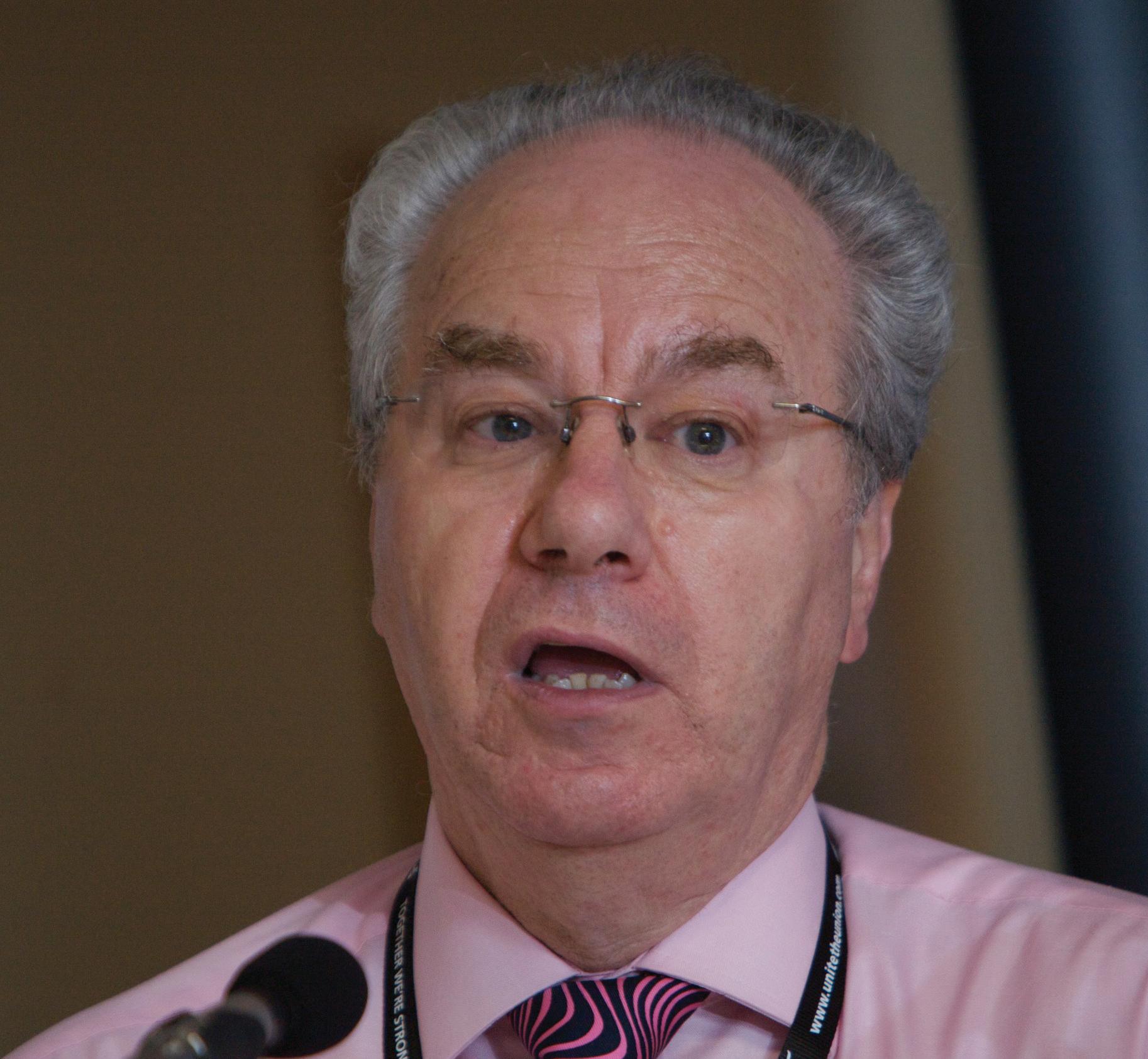
questions two hundred randomlyselected students across the country, for example, and finds that only 10% of them intend to vote Conservative, it makes sense to assume that this is a nationwide trend. An error may crop up, then, in the sampling itself; if a poll takes a sample which is unrepresentative, then the results will be flawed. Te fault with the opinion polls at this election may be that the real voting public do not look like the samples used, and this would explain why they kept repeating the same mistakes, over and over again.
Te British Polling Council have set up an inquiry in the wake of the election to find out exactly what went wrong, and new explanations are appearing continuously. A pollster working for Labour claimed on


First Minister’s Questions


It was a busy First Minister’s Questions last week, predominantly as a result of the General Election and its implications. Tere was worry among members of all parties about the situation in Scotland must not be ignored, as it could have serious implications including the breakup of the UK if the Prime Minister doesn’t address the issue adequately. Responding to

the leader of the opposition, Carwyn Jones mentioned that Wales did not vote for a Conservative majority, conceding the Tories had done well but had only got 11 out of 40 seats, and David Cameron must prove himself to be the Prime Minister of the UK rather than only the Prime Minister of England. On this issue, Jones added that only a constitutional convention for the UK could ensure stability.
Tere was concern from Plaid Cymru’s Leanne Wood on the impacts of the Tory cuts to come in Wales, and how the first minister will push for a greater devolution drive, possibly including welfare matters. Jones responded claiming he would like to see devolution go further than what has been agreed, and that Wales should be offered the same as Scotland has been, while taking care not to accept everything without consideration. Jones also said it would be vital for Cameron to ensure he keeps his promise of further Welsh devolution within 100 days, so we can judge whether he delivers on what he has said.
Kirsty Williams seemed happy to be in a party not in government this week, criticising the new Westminster policies on human rights. Kirsty Williams said the UK government want us to be in the same league as Kazakhstan and Belarus in regards to human rights, and the First Minister said the UK would look like a “banana republic”, reminding the chamber
Newsnight last week that Labour’s internal polls actually got the result right, because they asked questions ‘hot’, rather than ‘cold’ like most polling companies; that is to say, they asked the voter about the economy, immigration, party leaders, and other issues before asking them what their vote will be, meaning they’re in a more ‘ballot box’ state of mind than just being asked the ‘cold’ question of who they’ll vote for.
Tere is unlikely to be a single reason for the failure of the opinion polls at this election. Te inquiry will hopefully tell us more, but until then, it seems plausible that a number of the factors in this article combined to produce a result which seemed almost impossible beforehand: a majority government.
The fault with the opinion polls at this election may be that the real voting public do not look like the samples used
British lawyers helped draft the bill that even Russia is signed up to.
On this topic the First Minister also brought up how the proposed ‘British Bill of Rights’ had not even considered how it would affect the devolution settlement. He said that it is yet unknown how changing this would be possible in the devolved administrations as it is central to Northern Ireland’s assembly, and would need to change the constitution of the Welsh Assembly to be effective. However, Jones assured that we should not see a situation where the rights of a citizen are weakened, and we shall do everything that we can to ensure this. Also discussed was the Welsh language, where Jones outlined the need to ensure Welsh is used in technology more to make young people confident in using the language online, and that the government will try to ensure it can grow the confidence in learners and speakers to use the language professionally.
With Nigel Farage’s leadership now a point of contention, UKIP’s future could be in the balance
After failing to win South Tanet, Farage announced his resignation only to have it rejected by Monday. Nigel Farage is back leading UKIP, hoping to keep the EU high up on the agenda.
He doesn’t seem fazed though: he was quoted in TeTimes , saying that however bad this election was for him, last time was even worse, as he was in intensive care.
UKIP, seen by many as a one-policy party, also seems to be a one-man band. Is this a result of the increased “personalisation” of politics, or is the rest of the party made up of genuine no-hopers? Compare them to Labour or the Conservatives: while Cameron and Miliband’s ‘wingmen’ are themselves big players (think Boris Johnson, Ed Balls and Michael Gove). Most people at least know of Caroline Lucas, who, despite not being leader, was the only Green to get a seat in Parliament.
Tere are other UKIP members and MEPs, but they tend to be a little forgettable, until they make a racist remark that gets them kicked out. Douglas Carswell was the first MP elected for the party, shortly followed by Mark Reckless, but the latter has since lost his seat. Both had defected from the Conservatives, and are very ordinary looking politicians: middle aged white guys in suits. Presum-
ably, by joining UKIP they think that the Tories aren’t extreme enough for them: Carswell is quoted by the BBC as saying “Tey aren’t serious about the change that Britain so desperately needs.”
We know UKIP has a strong following in Wales, winning 13.6% of the vote in Wales at the general election. But have you heard of Nathan Gill? Me neither, but apparently he’s the head of UKIP for Wales. Clearly members other than Farage need to make an effort to get on the news to break free of this one man band image.
Often, the first time you hear of a UKIP member is when they’re being suspended Tere’s even a Tumblr blog with a timer that counts how long it’s been since the last UKIP suspension. (Ed. As of going to print the last suspension was on May 11th).
In one of the most recent incidents a UKIP canidade was expelled from the party for a recording in which he said he would “personally put a bullet between” the eyes of his Conservative rival, tipped to be the first Asian Prime Minister.
Due to the willingness of the rest of the party to blend in to the background and only pop out every once in a while, Farage is perhaps worried the party would collapse without him. Many believe Farage is the reason the
The EU is proposing national migrant quotas to share the burden of asylum applications more equitably. As of 12 May the United Kingdom, Ireland, and Denmark will not be obliged to join any of the quota schemes put forward by the EU.
Te proposed measures would create a mandatory system in which migrants will beresettled in order to relieve the strain of recent surges of refugees to countries such as Italy.
“ Asylum is not an act of mercy but a human right Austrian Chancellor, Werner Faymann
In the last year there has been an increase in migration to the EU via the Mediterranean. Te UN estimates that 60,000 people have tried to cross the Mediterranean and move to European countries due to crisis in Libya.
Te notion behind the measure aims to provide more legal methods for people to move to Europe so that they don’t turn to illegal trafficking methods. More than 1800 people have died while attempting to gain asylum in the EU. Tis is twenty times more than the same period last year.
Te measure is supported by Ger-
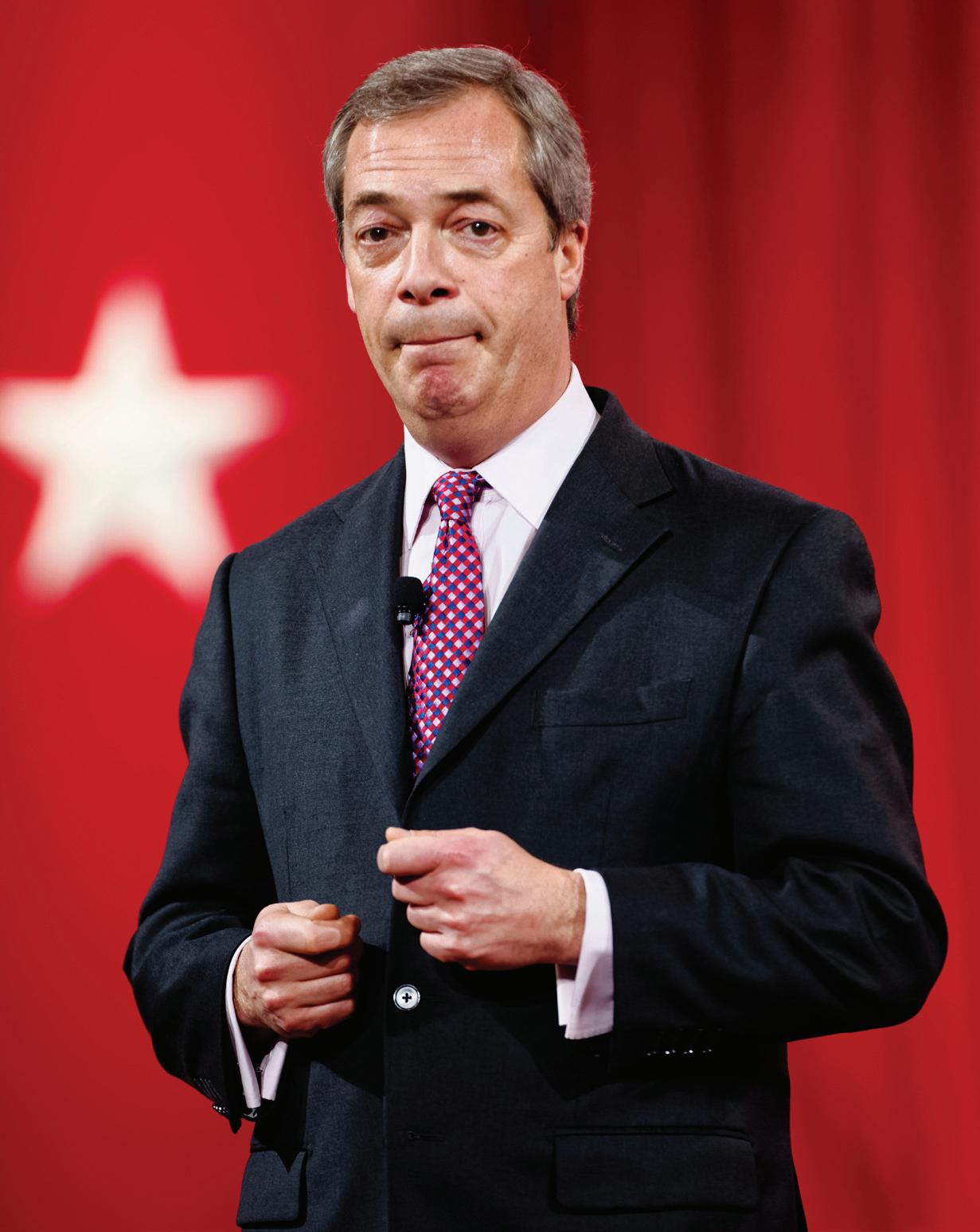
party has for UKIP’s success to date, and to lose such a prominent figure as leader would be a disaster.
However, since deciding to stay as leader Farage has recieved criticism from within UKIP, with campaign chief Patrick O’Flynn stating Farage was turning UKIP into a personality cult, adding he is a “snarling, thinskinned and agressive” man.
Tere appears to have been a falling out between the leader and the party’s sole MP Douglas Carswell too. Carswell refused to endorse Farage
as a potential UKIP leader after Farage’s resignation. Tey also disagree with each other on claiming taxpayer money to run the party, which they are entitled to because of their successful election. Carswell refused to claim around £650,000 a year for the party, and Farage later stepped down on the matter. Tis seems to suggest the party may be heading for crisis, with internal pressures building. Te party must decide, whether it is a one man band or an orchestra ready for the next election.
many, who received 247,635 applications for asylum in the last year. Italy and Malta also support the scheme as they receive many migrants arriving by boat, with Italy receiving the second most applications at 63,860 in the past year.
Te Austrian Chancellor Werner Faymann has endorsed the quota saying it is as “a question of fairness”, and that asylum is “not an act of mercy but a human right”. However, a UK spokesperson spoke out against the measures, saying “ Te UK has a proud history of offering asylum to those who need it most, but we do not believe that a mandatory system of resettlement is the answer. We will oppose any EU Commission proposals to introduce a non-voluntary quota.”
Hungary, Slovakia and Estonia all join the UK in objecting the EU proposals. Te EU Foreign Policy Chief, Fedrica Moghert, also wants a mandate to use force against traffickers out of Libya. Without the mandate, force would be illegal as traffickers would be in international waters.
Libya’s ambassador to the UN,
Ibrahim Dabbashi explained his position against the use of force on Libyan smugglers; “ Te Libyan government has not been consulted by the European Union. Tey have left us in the dark about what their intentions are, what kind of military actions
they are going to take in our territorial waters, so that is very worrying.”
Amnesty international has expressed its concern that this could leave people stuck in Libya in terrible circumstances, with recent reports of abduction, rape, and torture.

“There are other UKIP members and MEPs but they tend to be a little forgettable ”
Pictured: Nigel Farage (Photographer: Michael Vadon, Flickr) Tom Morris“ Among respondents to Gair Rhydd’s survey, 20% had voted Conservative
You would be hard pressed to find anyone alive in Wales who can remember when David Lloyd George was Prime Minister. Lloyd George’s Liberal party were voted from government in 1922; it was the party’s modern reincarnation, the Liberal Democrats who entered into coalition in 2010. The years inbetween show a history of liberal politics, especially in Wales, of splits, mergers and coalitions, the latter of which have decimated the party before its most recent losses.
The election two weeks ago diminished the party’s standing to relative insignificance. They lost 48 of their 56 seats and 15.1% of the popular vote, leaving them with 7.9% UK wide. In Wales, the party lost two of its three seats, in Cardiff Central and Brecon & Radnorshire. The Welsh popular vote fell by 13.6%, from 20.1% in 2010 to 6.5% this time round.
In the aftermath of this election, it is important to understanding what liberal principles are and what they mean in contemporary Wales, as well as where they now fit into the broader ideological/political landscape. After all, as a percentage, Lib Dem support in Wales is even lower than in England or Scotland.
In Wales, traditional liberalism was rooted in the land, in those historic agricultural communities in the mid and west of the country. It was a party of reaction and protest but also, later on, of a deep rooted pragmatism.
Due to competing priorities in Lloyd George’s time, coupled with a general decline in liberalism throughout Britain from the 1920’s the party remained in relative stag-
nation. From the 1930s until the 1960s Wales seemed generally ignored by the parliamentary party, as all efforts were put into saving the Liberals from extinction, particularly post 1945 when Labour became the dominant political force.
Plaid Cymru’s rise in the 1960s led to the North and South Wales Liberal federations to remain incoherent on a policy for liberalism in Wales. The party hoped by combining federations into an independent Welsh liberal party and by espousing themselves more broadly as the alternative ‘radical, non-socialist party in Britain’ they could regain lost votes. Some bolder liberals in Wales who wanted devolution at the 1979 referendum even went so far as to propose an association with Plaid to form a truly radical Welsh alliance to deliver home-rule. The infamous ‘gang of four’ who split from Labour to form the Social Democrats in 1981 were a continuation of this radical liberal tradition, the party ultimately merged with the Liberals to form the Lib Dems.
Historically, the Welsh electorate have sought to punish the Welsh Liberals as allies of the main government, as they did after the Lib-Lab pact in 1979, or shown indifference as happened after the 2000-2003 Welsh Assembly coalition. Or, in the new multi-party state of affairs, see little relevance in their message and reject them in all but eight seats.
To reclaim their liberal traditions they must clearly re-state their ideology against the new illiberal Tory majority in pushing fervently for House of Lords and voting reform. They must position themselves far from the previous coalition in opposing new snooping laws, Euroscepticism,
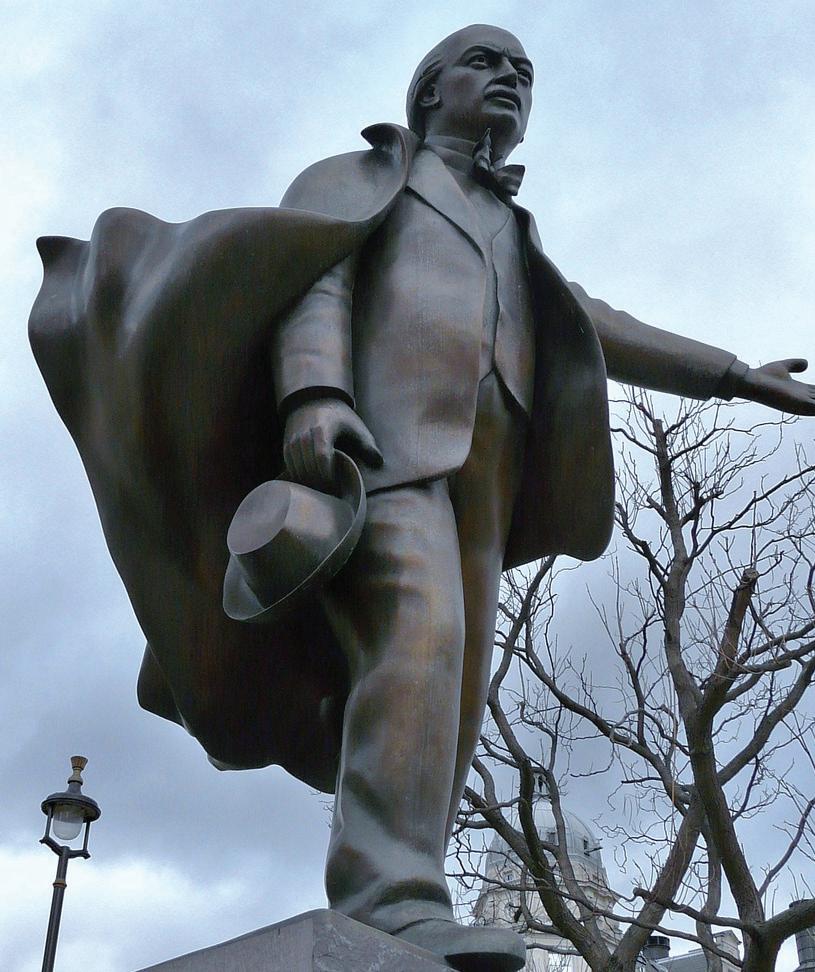
repealing the Human Rights Act and deeper welfare cuts which underpin the Conservative manifesto. Although they will be operating in a crowded landscape, where opposition will already be coming from the Welsh and Scottish Governments, in England and Wales at least, they have to re-affirm these principles to survive as a party. The fact that the Lib Dems still have 101 of 779 peers
in the House of Lords though, means they may find it hard to modernise as a centre-left, internationalist and real liberal alternative to Labour and the Conservatives. After all, that’s what Tim Farron, the bookies’ favourite to succeed Nick Clegg, must surely want? Farron has also recently hinted at a possible re-brand of the party, by changing its name to ‘the Liberals’. Well, it’s a start…
eft wing students need to stop mocking Tories. We need to start doing what the left does best: empathise. Empathise with the Tories. Tey are actually people too, you know.
Many students occupy a left-wing bubble. In this bubble, hating the Tories is assumed, and Ed Miliband is considered a friend. By consistently occupying this political space many were dumbfounded on the 8th of May as David Cameron won a majority. Countless statements, articles and blogs have sprung up on social media since, with people asking ‘WHY would anyone vote for this?’
In the midst of trying to piece together these election results, ‘the shy Tory’ phenomenon has come to light. A ‘shy Tory’ is someone who has quietly voted Tory without letting others, including pollsters, know. Tis goes some way to explaining the wildly inaccurate polling predictions.
Evidently the real tragedy here is that people feel unable to admit who they vote for in the face of some belligerent and condescending lefties.
Political debate is necessary for a healthy democracy. In order to have that debate, it is necessary for people to be vocal about their political stance. Stifling the debate also hinders the chance to change the views of the political opposition.
Among respodents to Gair Rhydd’s survey, 20% had voted Conservative, behind 33% of students who voted Labour. Further evidence that students are not as liberal the self-satisfied lefties among us thought.
Much of the left’s reaction in the aftermath of the election has generalised Tory voters. Numerous articles and blogs concluded that the Conservative win was the result of half of Tory voters blindly choosing the Conservatives with no real idea about what that meant, while the other half were indoctrinated by media propaganda and party smear campaigns.
While some of this plays a role, it is offensive and patronising to assume all 11 million people who voted Conservative fall into these categories. It should not have to be said that this a simplistic viewpoint.
People’s political beliefs are informed by a number of complex factors. It is a weak and arrogant argument by some on the left to presume that the reasons people voted Conservative can be explained away on
such dismissive terms.
While it is completely legitimate to be angry at political policies, it is not right to criticise the electorate and its decision using generalisations about voters.

“The election two weeks ago diminished the party’s standing to relative insignificance ”
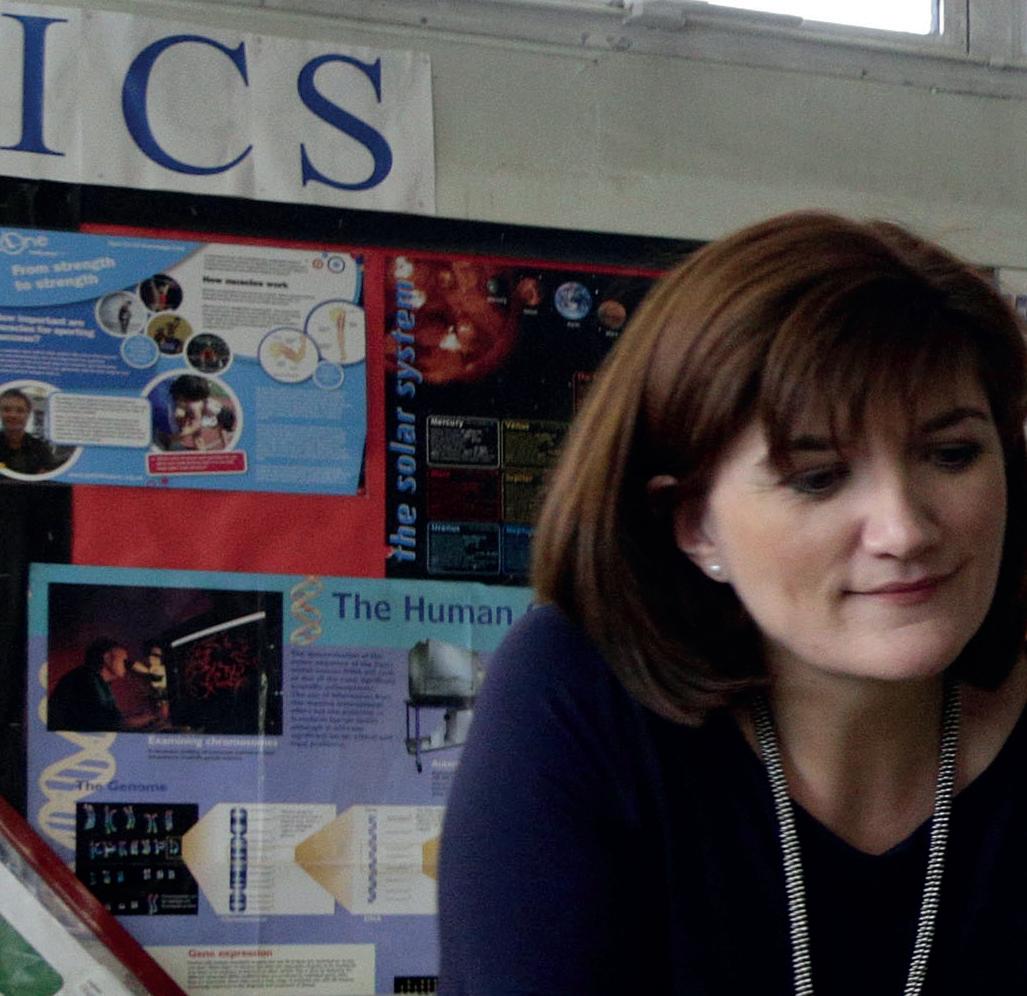




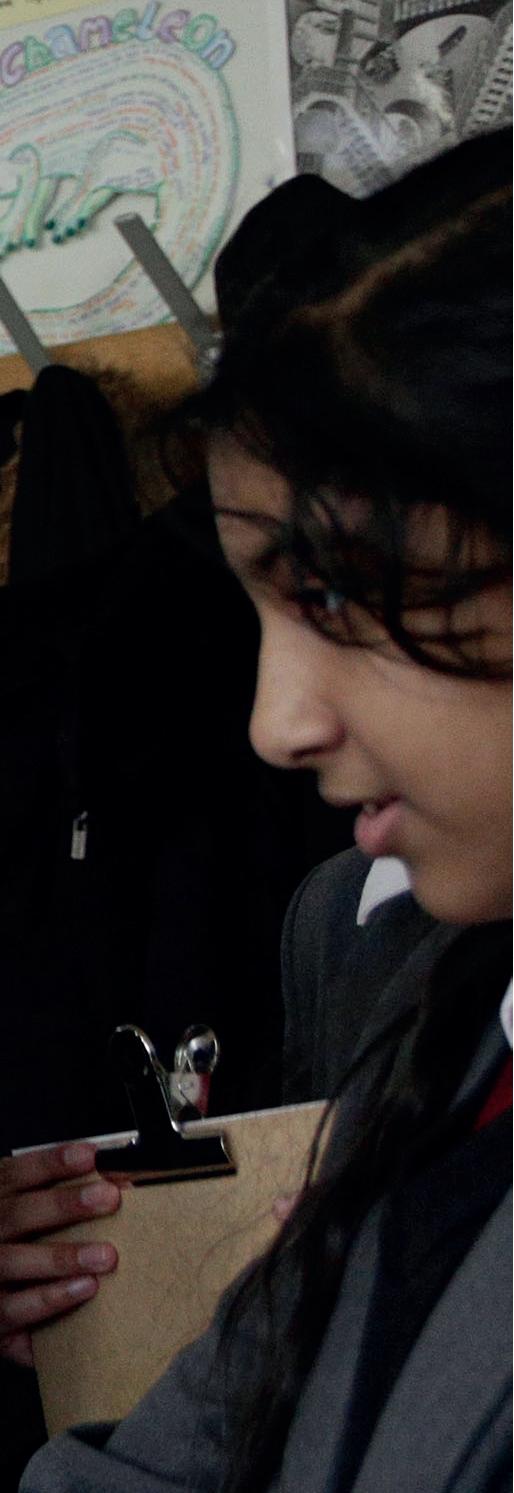
It is safe to say there are feelings of unease amongst the scientific community since May 7th and the announcement of a Conservative Government that will lead the UK for the next five years.
The singleminded focus on austerity economics, antiimmigration and anti-EU rhetoric carries a substantial risk to the health of UK science in the next five years and beyond
As we outlined in Gair Rhydd, the Conservative party were far from the worst in terms of supporting science, technology and education. Tey aren’t climate change deniers like UKIP, they vigorously support the teaching of STEM subjects in schools, and have pledged to invest £3 billion in protecting the environment. However, while they have protected the science sector from budget cuts over the last five years, ring-fencing and a lack of investment has actually reduced science spending by around 15% in terms on inflation.
Actual spend stands at 0.5% of GDP – this is far lower than any other G8 nation, and far below the recommended average of 0.8%, proposed by leading scientists. As austerity is a key part of the Conservative’s manifesto, and science hasn’t been safeguarded from further cuts, it is no surprise researchers across the country are concerned.
A major issue for academics is the promised EU membership referendum. According to Matthew Freeman, cell biologist at the University of Oxford, “Scientists don’t agree on much… But as we awoke last Friday morning, there seems to have been unanimity about one thing: the possibility we’ll vote to leave the EU would be a disaster for British Science.”
A huge amount of funding for science carried out in the UK comes from the European Research Council (ERC), who have invested over £5 billion since 2007 in programs for scientists after completion of their PhD. It
is worth nothing four UK universities were in the top ten most successful institutes in Europe during this time, with over 380 ERC projects hosted at these colleges.
A social media frenzy followed the election results, leading to the birth of a new campaign, “Scientists for EU”.
Te collaboration of universities, researchers and health professionals go on to describe the “strong euro-scepticism in the UK”, that is “of great concern to UK universities, researchers, industry scientists, engineers and innovators.” While they suggest the referendum should be welcomed to allow people’s concerns to be addressed, they argue “the UK is stronger when it collaborates closely with Europe and that British innovation is a world leader because of that partnership.”
Immigration restrictions are also a fear for many institutions, when at present, foreign-born scientists are valuable to the economy of the UK. Freeman added, “I, like all my colleagues, am deeply worried about the damage already being done by an absurdly restrictive visa regime. Tis limits excellent non-EU scientists from contributing to British success. Te idea that this could extend to the even great number of visiting EU researchers is really frightening.”
Te appointment of Jo Johnson as minister of universities and science during the Conservative cabinet reshuffle at least has the Science for EU campaign optimistic. Te younger brother of Boris Johnson, who has been MP for Orpington for the last five years, is seen to have a particularly pro-EU stance and is seen as a left-of-field choice. When he was appointed as policy chief in 2013, a cabinet member reportedly said, “When you talk to Jo Johnson it sounds like
he should be in the Labour party.”
While his left stance may be of comfort to some, his credentials certainly do not impress others. An Eton College pupil, as well as an Oxford graduate and a member of the notorious Bullingdon Club, Johnson studied modern history and progressed to become an investment banker and journalist.
Twitter reactions to his appointment include, “impressive education, clearly likes academic study, one question, does he know anything about science, or did he stop at GCSE?” David Price, Vice-Provost of Research at UCL, said, “Universities & Science minister an Old Etonion, Oxford arts graduate. What could go wrong! We’re all in this together!”
Even Johnson’s own father, Stanley Johnson, was surprised to hear of his son’s promotion. Told live on air by LBC radio presenter Iain Dale of the news, he replied, “Good heavens. I don’t even think he knows anything about science. I am very glad to hear it!”
Some scientists have actually voiced support for the Conservative party, saying there is support for science in Westminster, as well as a good understanding of its importance in relation to the economy. Deputy Director of the Science Policy Research Unit of the University of Sussex, Paul Nightingale, said that cutting the research budget would be a “hard sell”, and that instead he thinks “there is more likely to be movement within the research budget, perhaps towards innovation policy, as well as more explicit attempts to realign research with economic growth.”
Naomi Weir, acting director of the Campaign for Science and Engineering in London, echoes Nightingale’s
sentiment: “Te Conservatives provided relative protection for science and engineering, recognizing the benefits it brings to economy and society. Te new government will now have the opportunity to make transparent and ambitious plans for science, investing for the long term in a national success story.”
Freeman however, disagrees. Te scientist has been particularly vocal about the need for the Conservative party to invest in the sector, and critical of their current stance. “Te single-minded focus on austerity economics, anti-immigration and antiEU rhetoric carries a substantial risk to the health of UK science in the next five years and beyond… Any loss in our research and innovation profile on the global stage risks making Great Britain considerably less great.”










A
Researchers at the University of Bristol have suggested that the speed of our beer drinking depends on what we sup it from, and the shape of a pint glass can “be altered to nudge drinkers towards more responsible consumption”, at a time when drinking to excess remains a serious concern in the UK.
“ ”
While drinking is seen as a right of passage for students, you cannot ignore the costs both to our health and the NHS
Shanna Hamilton Shanna HamiltonRight now, it’s a little bit of a Wild West as far as microbiome data management goes
Te historic British tradition of beer consumption has been a staple of the Gair Rhydd Science section this year, including the best quick fi x for a hangover and absurd Japanese ale that claims to improve your looks. While drinking is seen as a right of passage for students across the country, you cannot ignore the costs both to our health and the NHS with, according to the World Health Organisation, alcohol consumption accounting for 3 million deaths around the world each year. In Wales, 1000 deaths every year are attributable to alcohol.
So new findings from Bristol’s Tobacco and Alcohol Research Group, funded by Alcohol Research UK, has been most welcome. Dr Angela Attwood, senior researcher of the study, explained: “Our research suggests that small changes such as glass shape and volume markings can help individuals make more accurate judge-
ments of the volume they are drinking and hopefully drinkers will use this information to drink at a slower pace.”
In a study of 160 men and women, half were given beer in curved glasses (think Stella or Carlsberg) with markings at each quarter. Te other half got beer in curved glasses with no markings. Observing how quickly participants downed their beer, authors noted that people with the marked glasses finished a pint significantly slower.
To check this played out in a realworld setting, study authors carefully watched three pubs over two weekends, calculating how much beer was sold and what type of glass was used. When an alcoholic beverage was served in a straight-sided glass instead of curved, sales were much lower. This indicates less alcohol consumption, according to the team.
David Troy, co-author said, “Excessive alcohol use is a major public concern and there is a lot of interest in alcohol control strategies. It is important to determine what environmental factors are contributing to excessive use.”
Attwood also added, “ Te speed at

which beer is drunk can have a direct effect on the level of intoxication experienced. Tis can also increase how much is consumed in a single drinking session. While many people drink alcohol responsibly, it is not difficult to have ‘one too many’ and become intoxicated”.
Terefore, it may be that us students will benefit from changing glass shape to prevent overdoing it, a night of embarrassment and a hangover
from hell.
Some scientists, however, are skeptical of this work. Dr Anna Lembke, director of the Addiction Medicine Program at Stanford University said, “ Tere’s no doubt that context matters when it comes to alcohol and drug use. But a study showing that social drinkers drank the same amount of alcohol 1.2 minutes slower that drinkers with unmarked glasses is hardly meaningful.”
At a time of NSA surveillance, GCHQ scandals and the arrest of Edward Snowden, privacy issues have never been so pertinent. It may therefore be of concern that the DNA of bacteria that inhabit the human body, the “human microbiome”, can actually be used to uniquely identify someone.
Te human microbiome has been a hot topic in scientific research the past few years, with scientists keen to discover the role the bacteria that colonize our bodies may have on how we live. It is difficult to comprehend that we carry ten times more bacteria than our own cells, 100 trillion infact. Tis population, the microbiome, has an impact on our digestive system, immune system and in fact our overall health. Everything we do can change the bacteria that live inside us – what we eat, if we fall ill, even how we are born.
We are constantly depositing these bacteria everywhere through our skin, as well as our own DNA. It was never clear whether an individuals unique microbiome, populated with different numbers and species of bacteria compared to anyone else, would be permanent enough to actually identify someone.
However, new research published in Proceedings of the National Academy of Sciences, has suggested that a person can be identified even through an anonymous study of their microbiome, and can reveal lifestyle and health details. Another study, published in Genome Research last month, also suggests that a microbiome database maintained by the US National Institutes of Health, already contains information that makes study participants identifiable.
Study lead Curtis Huttenhower, of the Harvard School of Public Health said, “If you deposit microbes, you’re probably depositing your DNA too and DNA forensics is so well developed.” However, he also added, “Right now, it’s a little bit of a Wild West as far as microbiome data management goes. As the field develops, we need to make sure there’s a realisation that our microbiomes are highly unique.”
Huttenhower and his team looked at the Human Microbiome Project, using an algorithm that took data from each volunteers visit. By analysing patterns, and looking for the presence of distinct species or strains of bacteria, the team could create a code that was consistent over time
for each individual. Tey could identify the right person in a third of cases, even after a visit several months later.
Although the accuracy of the algorithm was low, the issue is that it will easily be improved upon and people will be recognisable from the bacteria they leave behind. Tis adds to the biological data privacy concerns that have been an issue for many years, with groups showing that databases


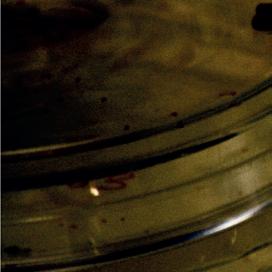
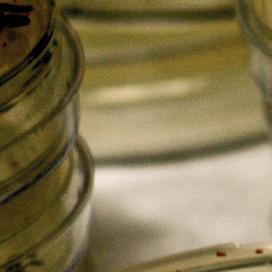

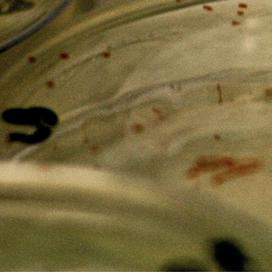
can be penetrated when cross-referenced with others. One group in 2013 could name five people who took part in an “anonymous” genome project.
“ Tis isn’t an issue now and it’s not a high-risk issue, but it’s still important for us to consider. No one study has any danger of releasing private information but due to uniqueness, the ability to link across studies becomes possible,” says Huttenhower.


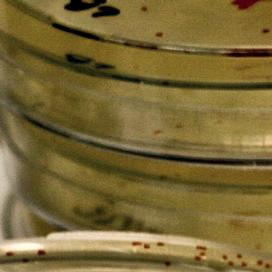

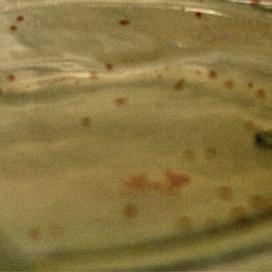



identify bacteria, but now bacteria may be used to identify you

It’s here, Cardiff University Students’ Union’s end of exam extravaganza. From the team who brought you DTBD Xmas and DTBD Wonderland.
Big Summer Blowout is a Summer themed party. You can expect a huge BBQ with your favourite street food, carnival games and YOLO/FLUX DJ’s bringing you your favourite summer club anthems. We’ll also be hosting carnival style games such as Hook a Duck, Ring Toss, and a Coconut Shy. Every time you buy something in our food court in Y Plas, or the Taf, you’ll get a free scratchcard featuring all kinds of prizes from free drinks to tickets to the event. (Ends 11th June 2015).

The annual celebration of societies and their members took place on Friday 8th May in the Great Hall in the Students’ Union.
After a champagne reception, a three course meal and lots of complimentary wine, the awards ceremony began with an introduction by Barney Willis, VP Societies, to an incredibly supportive audience, many of which were chanting ‘Barney!’ in support. Barney remarked about the evening: “Te Ball was the best evening of my entire year as VP Societies as well as being one of the best evenings of my entire life. Tere are no words to describe quite what it feels like to have the entire year rounded off so wonderfully and I will never forget the incredible people who attended – you guys are great! On top of that, seeing Societies recognised for the amazing stuff they do reminded me just how amazing you all are. It felt like a night that represented Student Unionism at its very best and I will never forget it.”
The Ball was the best evening of my entire year as VP Societies as well as being one of the best evenings of my entire life Barney Willis
Te hosts for the evening were Sam Lloyd and Rob England, presenters on Xpress Radio and CUTV. Tey announced the awards for the evening, which kicked off with Best Go Global Performance, with the Tamil Society taking home the first award of the night, and the Asian Society a runner up.
Te second award was for the Best Fringe Festival Event which went to Battle Scars, an Act One original musical written by Act One member, Alex Gatherer. Te Operatic Society’s opera, Purcell’s Te Fairy Queen was given the runner up award. Te Fringe Festival ran between 13th-21st March earlier this term.
Out of the eight associations at the Students’ Union, the Association of the Year went to the Women’s Association, with an acceptance
speech by the current Women’s Officer, Laura Carter. Te runner up award we to the Postgraduate Association, who also have celebrated a very successful year with their big achievement, the introduction of a full time Postgraduate Officer position.
Te runner up for the Student Led Service of the Year award went to Nightline, who took to the stage wearing masks to keep their identity anonymous due to the type of work they do for students. Student Minds won the trophy for this category.
Te next set awards were acknowledgements for successful events that have taken place this year.
Te Best Small Event went to the Airsoft Society for their Speedball event. Te runner up was the Catholic Society’s Conference. Te runner up for the Best Large Event category the previous year won this year: Malaysian Society’s Festival of Diversity held at St. David’s Hall. Te runner up was the Broadway Dance Society’s Competition.
Te Best Newcomer award celebrated societies who had begun in the past academic year. Both societies were formed at the beginning of this academic year, with the runner up award going to Bollywood Dance Society and British Red Cross taking the winning trophy.
Te Best Society Collaboration had possibly the most enthusiastic response once the results were announced, due to the sheer number of societies present at the ball who took part in these events. Te Student Led Services week featured the following Student Led Services: Cardiff Healthy People Society, Fruit & Veg Co-op, Nightline, RAG, SHAG and Student Minds. Tis won the runner up trophy.
A first for the musical societies, a massive collaboration featuring nine
different societies took place during Cardiff Fringe Festival Week. Te Music Showcase won this award.
Te runner up for Most Improved Society went to Global Health Student Network, who run lectures on global health issues. Expression dance society took home the winner’s award for this category.
A new category this year, the Committee of the Year award was won by Slash dance society. Te runner up award went to the Jazz Society.
Te Most Committed Member award celebrates the work of a noncommittee member to their society.
Te runner up for this award went to Asian Society’s Kandarp Patel, with Abby Spittle from A Cappella Society winning the category.
In a similar vein, the Committee Member of the Year award’s runner up was Katie Blackwell from Operatic Society, with the winner going to Victoria Botting from Cardiff Marrow.
Te Officer’s Choice for Outstanding Contribution shortlist was of a very high standard, with many committee members putting in several hours a week for their societies. Te runner up award went to Milly Dyer, for her work with Brass Band and Give It A Go. James Ledward took the winning trophy, for his work as presidents of SHAG and Maths societies.
Te Best Small Society award was open to societies with less than 75 members. Cardiff Marrow took the runner up award, with the Operatic Society bringing home the winning trophy. Both societies had already seen success earlier in the evening so this was a pleasant surprise to win another trophy.
Te Christian Union won the runner up award for Best Medium Society, with a surprised Anime Society committee taking to the stage
for their acceptance for the winning trophy in this category.
Te Best Large Society category was open to societies with more than 150 members. Te Broadway Dance Society were the runners up for this category, with the clear winner, Act One, taking home the winning trophy for their endless successful productions this year.
After the awards, Barney took again to the stage with his closing speech where he thanked people in the room, specifically Tracey Bishop, the Union’s event’s manager, responsible for putting on the series of balls that week. She was presented with flowers and a large round of applause from the audience. Barney thanked Becky Gardner, the Societies Coordinator, and Josh Gibbs, the Give It A Go coordinator for their work this year, reflecting that he has made amazing friends during his year as a sabbatical officer. Barney thanked Becky by giving her a large bunch of flowers. Tis was met with a standing ovation from the audience, a small token of how thankful everyone was for all of her work this year. Becky emotionally reflected on the past year,and remarks about the evening, “the societies ball was absolutely wonderful. Over the past year I have met some of the loveliest, most passionate, polite and committed students there are at Cardiff. It’s always an absolute pleasure to work with societies and I’m so proud of everything that has been achieved. Te Ball was just the best way to celebrate how amazing Societies are! Congratulations”.
Te night ended with a DJ, with people returning to the photobooth and posing for professional photos, with the awards a perfect end to another incredibly successful year for societies.
Becky Gardner was met by a standing ovation from the audience, a small token of how thankful everyone was for her work this year

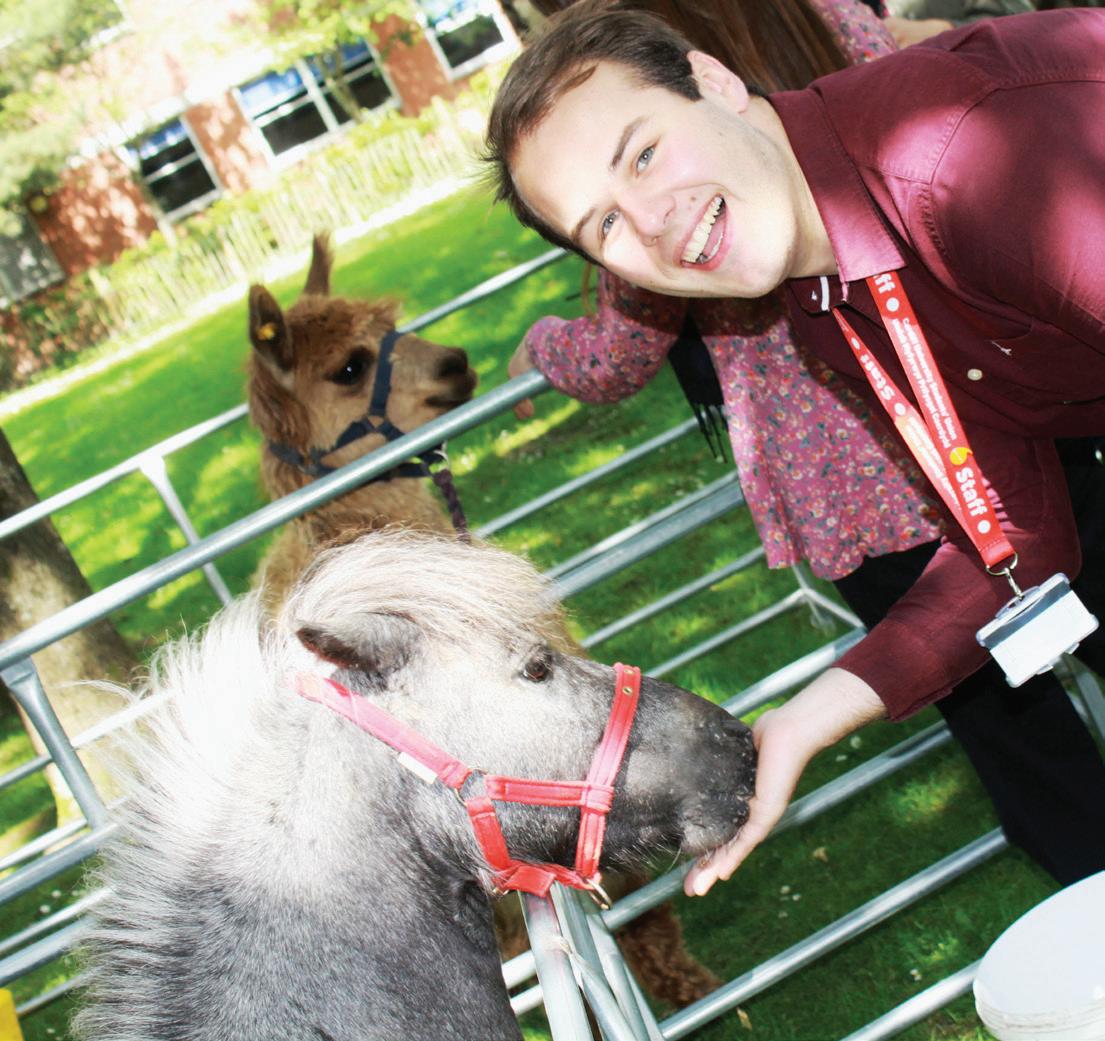







Revision aid also provides you with free coffees, teas and cold drinks to help fuel you through the long library sessions
Hello everyone!
I hope that you have all had a great few weeks, and for those of you that have exams coming up, revision is going well. You may have noticed that the Students’ Union have been running their annual campaign of ‘revision aid’, basing themselves in the Cochrane Library. Tis campaign aims to give you the help you might need during the exam period, including top tips for exams, methods of revision and other goodness that can help you cope with your summer exams. Revision aid also provides you with free coffees, teas and cold drinks to help fuel you through the long library sessions that you are likely to be experiencing! We’re due to be up at the Heath next on the 19th of May, 11am-1pm, and then again on the 21st of May, 4-6pm. We’ll be based in the Cochrane Library so make sure you come along, say hello and enjoy the free drinks on offer!
received greater registration figures when compared to other highly student populated cities which is just incredible! Tis helped lead to an eight per cent increase in voter turnout in the Cardiff Central constituency when compared to the 2010 General Election. Tank you to all students that supported the campaign!
Claire BlakewayFrom September, due to many requests, the IV Lounge will be opening until 5 o’clock “ ”
”
In other news, I would like to share the success of the General Election voter registration campaign that the Students’ Union ran over the past few months. Although there had been changes to the voter registration process, where the outdated ‘head of household’ registration system has been replaced by individual registration, the Students’ Union campaign to get students to register to vote was very successful. Cardiff actually
Last week, it was the Students’ Union awards season and it was fantastic to see so many Heath students do so well. I know what it’s like being a Heath student, it’s hard to get involved in extra curricular activities alongside the demands of placement and a heavy contact time course, but despite this, so many of you engage amazingly with these extra activities. Tis was very much highlighted at the awards last week, where several of the Heath based societies including Marrow and the Global Health Network who won awards at the Societies Ball. Again, at the Enriching Student Life Awards (ESLA), many of our reps received such commending nominations that really highlighted their commitment and passion for the student voice at the university. It has been an absolute delight to work with all of Heath based societies and course reps this year, and I wish you all every success in your future!
In regards to other things that are taking place at the moment, I am working with the College of Bio-

medical and Life Sciences to look at ways in which inter-professional learning can be introduced into the curriculum. I am a firm believer that healthcare students should learn in an inter-professional way as this not only allows students to have a better understanding of other professional roles, but it also encourages a team work ethos from day one, which will be beneficial to students in the future.
I’ll be keeping you updated with the progress of this. In the next edition of Park Life, we’re looking to do a ‘highlights of the year on campus’ issue. If there is anything that you would like to add to this issue, then please do let myself or Vidya know.
Remember my email is vpheath@ cardiff.ac.uk and Vidya’s is BrainerdVC@cardiff.ac.uk. It would be great to hear from you!
Have a great few weeks!
Big changes are coming this summer as the Heath Hub and Students’ Union Rooms at the Heath get a well-deserved make over.
Te Hub will be renamed ‘Te Students’ Union at the Heath’ and will be fitted out to resemble the modern feel to match the Park Place Students’ Union - something that is well overdue! But it’s not just the appearance that’s going to change.
We will be getting more space for stationery and clothing. You asked us to increase our range of products that we sell at much lower prices than the other on-campus stores, so we will make sure we are stocked with more of the goods you need. We will also have an extra desk for Students’ Union staff members. Tis means services and elected officers will be on rotation to visit the Heath Campus and work from the Heath for the day. We already have a dedicated staff member working at the Hub and you can already access all the services there, but next year you will be able to chat to the Park Place staff members who will be at the Heath and will be able to help with any enquiries and address any concerns you have directly. Tis way Park Place staff can see what challenges face the hard working Heath
students and with your input, changes can be implemented that will help provide better access to everything the Students’ Union offers.
Te offices we have in Neuadd Merrionnydd, where the Advice Service are also getting updated. Advice already run drop in sessions at the Heath on Mondays between 12pm and 2pm and are also available to come to the Heath through the week should you need advice. Next year, they will have a much more comfortable and modern room to see students in. Other services will also work from there, such as the Skills Development Service, and this will result in further engagement with the Heath students. We will also have two meeting rooms available for societies, clubs and students who want to book them out. Tese rooms will also be newly fitted with computers and plasma screens should you want to utilise them in a meeting.
Any societies or clubs that need to store any of their stuff at the Heath will also be given more space. If you are super keen, give Neil Alexander a visit in the Heath Hub and he will be able to sort this out for you!
From September, due to many requests, the IV Lounge will be opening until 5 o’clock. Group work can be

completed in the cafe or students can use it to unwind after lectures. Tis also means the Students’ Union at the Heath will be open until five should you want to use any of the services provided.
We have tried to listen to all your needs to improve our engagement with Heath students. Big changes will continue to take place in the forth-
coming year, but this can only continue to happen with your feedback and ideas. If you have any suggestions please feel free to email VP Heath Park Claire Blakeway at VPHeathPark@cardiff.ac.uk or Student Union Staff Member, Neil Alexander at Alexandern@cf.ac.uk or alternatively, pop into the Hub on weekdays between 9am and 3pm.
I know what it’s like being a Heath student, it’s hard to get involved in extra curricular activities alongside the demands of placement and a heavy contact time course
“ ”
“
It’s not just the appearance that’s going to change
The category was highly contested with three outstanding students nominated
“
I feel so fortunate to have been part of a panel that represents the student population
”
As of the next academic year the Students’ Union will be supplying every Healthcare student that studies in the School of Healthcare Sciences with a placement pack. We know how stressful and isolated students can feel being away on placements, so we want to remind you that we are still thinking of you and we are always contactable. Just because you are on placement, that doesn’t mean you are unable to reap the benefits of being a member of the Students’ Union. Introduction of these packs stem
from the fact that some students have expressed how placements can be a daunting experience. Tey have also said that they can feel overwhelmed and alone, as well as miss their campus, house and friends. A need has also been identified that some students would like to get advice on some situations that may arise while on placement.
Packs are being assembled now and a welcome pack will be left at the accommodation where your placement is based. In them there will be a mug
or tea towel, contact details for us and relevant people, a guide on social media use, information and guidelines on situations and hopefully some vouchers for the surrounding businesses, gyms and coffee shops so you can get out and about in your placement neighbourhood. We are also trying to get some local information for every site, so we will be able to let you know about local laundrettes, nice places to eat and local places of interest.
Tere will also be a section of the Students’ Union website dedicated to
placements which will have all the information and guides available to view online. We will try to make this as interactive as possible so students can recommend places to eat in the area as well as share concerns and support to fellow students living away.
If you have been on placement and have an idea of what else you would like in the placement packs feel free to email VP Heath Park, Claire at VPHeathPark@cardiff.ac.uk or Heath Co-ordinator Neil Alexandern@cardiff.ac.uk
The Enriching Student Life Awards were held last Tursday. Te awards exist to thank and award those who work hard to improve student life at Cardiff University. Tis year, more than three hundred nominations for students and staff members were received from current students, in categories such as; Enriching Student Life Award, Most Innovative Staff Member and Student Academic Rep of the Year. Te nominations were judged by a variety of students and staff
Te Student Academic Rep of the year for the College of Biomedical and Life Sciences category was highly contested with three outstanding students nominated. Tese students included Hannah Chandler (Psychology Rep), Jumana Nabulsi (Pharmacy Rep) and Andrew Brimmer (Bioscience Rep). Jumana Nabulsi went on to win this category, but also went on to be the winner for Student Academic Rep of the Year overall which is a fantastic achievement! Here is what her nomination said about her outstanding work:
“Jumana has led from the front as the Pharmacy UG SSP chairperson.
As well as her general organisation and support of the reps she has undertaken a project to gain student views on receiving exam results, led the reps in working towards the Green Impact Awards scheme and organised an event for International Women’s Day including arranging speakers, booking refreshments and producing film clip messages from inspirational women including Prof P. Price. She is a wonderful example of the rep system at its best.
She is the most friendly, approachable rep: you will always find a smile on her face, she takes many views into consideration, gets everyone involved including staff, works extremely hard and she is a proactive and passionate about what she does.
Above all, she is a kind, committed, enthusiastic, determined, hardworking individual who is a great friend and joy to be around. I cannot recommend her enough for this award and think of no one more deserving.”
We are all very proud of the deserving winner in a category that was filled with outstanding nominees. Congratulations again Jumana, you have done the college proud!

If you are interested by the hard work that our student’s reps have carried out this year and you fancy
becoming a Student Rep yourself or have any questions, feel free to send an email to studentreps@cardiff.ac.uk
Iam fortunate to have sat on the Pharmacy Student Staff Panel (SSP) for four years. It’s been an incredible journey from being a Student Representative in my first year, to Secretary in my second and third years, and finally Chairperson in my fourth year. I’ve really grown and learnt so much during my time on the panel. It was an emotional last SSP meeting for me last month when all I could think about was my first ever meeting in first year. I hardly said anything during that meeting and remember thinking ‘what did I get myself into?!’ Little did I know that I would not only end up attending eleven more meetings, but actually chairing meetings as well!
Over the past four years, I’ve had the privilege of working with wonderful and inspiring people: staff and students. I feel so fortunate to have been part of a panel that represents the student population. Our voices as students are so highly valued, and we always felt that our work as a panel was very appreciated by our School.
Terefore, I saw myself in an environment that allowed me to flourish and express my passion to make things better.
I am so humbled and honoured to have won the awards. Admittedly, however, I still have not processed it all. It’s going to take a little bit more time for me to believe it had actually happened! All I was thinking on the night was ‘don’t cry’, but that didn’t go so well, which is why I had no words when I went up on stage. Tose who know me know that I almost never run out of words to say, but I was utterly speechless, as I could not believe it! Tat second time I had to go up on stage was so surreal. I thought I was dreaming. So, I would like to take this opportunity to say thank you.
Tank you so much to the truly inspirational Dr Louise Hughes who has been a pillar of support for the past four years. Tank you also to all the wonderful people who nominated me, to every single student and staff who sat on the SPP, those on the judg-
ing panel, students and staff across the university for all your hard work and last but not least, the members
the staff of the Students’ Union who made the ESLA’s such a wonderful evening.

She is the most friendly, approachable rep; you will always find a smile on her face
”
Claire Blakeway Pictured: Jumana Nabulsi, winner of the Student Academic Rep of the Year award at the Enriching Student Life AwardsFitness
Plagiarism
Appeals
Disciplinary
Extenuating Circumstances
Exam Misconduct
Interruption of Study
Complaints




Following the very public media sacking of Peter Moores, we explore whether the pressure is becoming too much in sportJoe Atkinson
“
” At Cardiff City for example, the oftencriticised Vincent Tan has been relatively patient with his charges
Last weekend’s sacking of Peter Moores as the head coach of the England & Wales cricket team brought into focus once again the subject of the treatment of those who lead sports teams.
Moores, hired in April 2014, was removed from his position just one year into his second spell as head coach of the national team, with reports claiming that the former Sussex wicket-keeper only heard of his dismissal through newspaper reports.
As sport becomes ever more competitive and success is required immediately, those in charge are being given less and less time, and less and less respect, by their superiors and supporters who are desperate for their team to become the next success story.
Success, however, does not come overnight. Moores had only twelve months in charge of England, barely enough time to make his own mark on what is an ageing team. Controversy over the mercurial Kevin Pietersen, out in the international wilderness following a spate of sour incidents, along with England’s failure to advance from the cricket World Cup’s group stage effectively sealed his fate.
But to sack him without even informing him before the newspapers could get there first - that’s just
disrespectful. Moores’ sacking came shortly after the hiring of former England captain Andrew Strauss’ appointment of Director of Cricket at the ECB, with a change in direction cited as the reason for his departure.
Tis isn’t the first time that the media have beaten a team’s board to the punch-line. In June 2013 football manager Gus Poyet learned of his sacking by Brighton and Hove Albion while serving as a pundit on the BBC’s Match of the Day coverage of that summer’s Confederations Cup.
Poyet and Moores then share a bond of having their duties revealed in the most undignified of ways, but the pressure placed on managers to succeed means that these incidents are almost inevitable and are becoming more and more commonplace in the modern sporting world.
At Cardiff City for example, the often-criticised Vincent Tan has been relatively patient with his charges; his first appointment Malky Mackay, hugely popular with Bluebirds fans, took the club to the Premier League but was sacked soon after following a huge falling out with the club’s Malaysian chairman.
Mackay’s replacement Ole Gunnar Solskjaer lasted just under ten months, having taken the club back down to
the Championship and leading them on a poor run in a division in which he should be doing better. Current boss Russell Slade has faired just about the average for a Tan appointment, having been in charge since October and looking to continue into the new season.
Owners aren’t the only ones who mistreat managers. Newcastle United fans never took to their former boss Alan Pardew, whose January move to Crystal Palace with the Magpies in mid-table signalled a downturn in fortunes for his former club, who are now floundering dangerously close to the Premier League zone under the guidance of caretaker manager John Carver.
Te grass has so often been found not to be greener on the other side once a perceived-to-be-underachieving manager is dismissed. Sunderland, while looking to avoid relegation, have rarely prospered under Dick Advocaat after he was hired to replace the aforementioned Poyet, who found himself on the end of another sacking back in February.
Admittedly, sometimes the scattergun approach to hiring coaches works; in the Football League Championship Watford succeeded where Cardiff City failed in gaining
promotion, undergoing no less than three managerial changes, as first Beppe Sannino, Oscar Garcia and Billy McKinlay came and went before Slavisa Jokanovic attained promotion following his hiring in October.
Roman Abramovich has been similarly trigger-happy with his managerial appointments during his hugely successful reign at Chelsea. Under his rule the Blues have seen ten men pass through the manager’s door as the Russian owner has constantly strived to get bigger and better. Chelsea have picked up 15 trophies in that time, vindicating the decision to constantly change the man in the hotseat.
Ultimately, this is professional sport, and managers and coaches should be able to deal with the pressure and the implications of doing a substandard job. However these pressures have become more pronounced as the increasing importance of money in sport means success is becoming essential for the on-going survival of clubs.
Tere is no doubt however that the treatment of Peter Moores in his sacking from the top job in English cricket, and there is an unrealistic requirement for coaches to be miracleworkers right away.
Managers and coaches should be able to deal with the pressures & implications of doing a substandard job
“ ”



Continued from back page
tweet us @gairrhyddsport email us sport@gairrhydd.com or visit us online at gairrhydd.com/sport
In Garry Monk’s first full season in charge of Swansea City, the former Swans captain has led his club to their most successful finish in top flight history and has picked up some hugely impressive results along the way.
Tipped to struggle by many due to his stature as a novice manager, Monk has exceeded all expectations to cement Swansea’s place in the top half of the Premier League table, in spite of the January loss of top scorer Wilfried Bony to Manchester City.
Te club’s summer signings have been successful on the whole. Lukasz Fabianski has excelled in goal following a long spell as secondchoice goalkeeper at Arsenal, where he unfairly picked up the nickname ‘Flappyhandski’. Te re-signing of Gylfi Sigurdsson from Tottenham has been a hugely rewarding one also, with the Icelandic midfielder contributing through driving performances, complemented with goals and assists.
Bafetimbi Gomis, a free transfer arrival from Lyon lived in the shadow

After returning to the Football League for the 2013/14 season and finishing in a respectable 14th place, Newport County came into this season looking to push on and continue to build a formidable squad to challenge for the better half of the League Two table. Justin Edinburgh brought in already established players in their league, with the likes of Yan Klukowski and Kevin Feely adding depth.
While the season didn’t start off too well, as the Exiles suffered an earlier exit from the Capital One Cup to

An 11th place finish in the Football Conference, one place above local rivals Chester, could viably be seen as a solid performance in comparison to recent Wrexham F.C. seasons. However, fans will know all too well that their 150th season has been one of frustration and disappointment.
As ever, the top of the Conference table remained congested throughout the first few months of the season, as every team raced out of the gates in a bid to break into the Football League. Wrexham were among the most competitive teams at this stage but by the end of January play-off hopes seemed like a distant memory, as the Dragons made a habit out

Te Cardiff Blues, along with the other Welsh regions, look set to become embroiled in a legal battle with feeder club Pontypridd. Te four Welsh regions have proposed to create regional ‘A sides’ to participate in the British and Irish Cup from next season onwards, instead of four sides from the semi-professional Welsh Premiership. Pontypridd, who have dominated the semi-professional rugby in Wales and have been extremely competitive in the British and Irish Cup, have vowed to fight for their future in the
of Bony for the first half of the season, but came into his own as the lone striker in the second half, stepping up to the plate to claim some vital goals towards his club’s cause.
Monk, who replaced Michael Laudrup toward the back end of last season, picked up the Premier League Manager of the Month award for August as his team won three out of three games, including and opening day victory over Manchester United at Old Trafford.
While never quite being able to replicate that form from their first three games, Swansea have been consistent in claiming scalps and showing their mettle. Particularly of note has been the team’s ability to change tactics to reflect their opponents, allowing a number of game plans to be executed.
For example Swansea have played with the swagger and attacking quality that was made famous under first Roberto Martinez, then Brendan Rodgers and then Michael Laudrup, but have also been able to dig deep
the hands of Reading and started the league with three consecutive defeats, a 4-1 victory over AFC Wimbledon at the tail end of September certainly boosted the club, with excellent spells of form occurring throughout the first half of the season, especially during the end of November and into December which amassed six league wins out of seven to put them right in contention for promotion in 3rd place. Edinburgh continued to fortify this depth he had amassed, with loan signings of players like Curtis Obeng certainly helping out the Exiles push
of squandering chances and letting crucial points slip by.
Te 2-1 loss at the Deva Stadium encapsulated their inconsistency. After going 1-0 up in the second minute and looking nailed on to take the three points for the rest of the game, Wrexham fell apart and let in two late goals. Te performance foreshadowed a season in which fans’ hopes were regularly built up and then dashed. A similar sentiment can be applied to the club’s journey in both the FA Cup and the FA Trophy. A heroic trip to the third round of the Cup took Wrexham to the Britannia Stadium, where they again put themselves ahead in the early stages, before allowing in three Stoke goals.
competition. It is thought by many that the gap between the semi-professional Welsh Premiership and the Guinness Pro12 is currently too wide, with the regions looking to bridge that gap with the proposed A-side set up.
Despite having no professional entity in the Rhondda Valleys since the Celtic Warriors were shut down in 2004, Pontypridd still boast an impressive fan base for a semi-professional club. Te British and Irish Cup has seen the Welsh Premiership champions remain competitive against some fully
and grind out results against the odds. For example Arsenal manager Arsene Wenger complained that only “one team wanted to win” as Swansea came away with a 1-0 victory at the Emirates Stadium in early May. It has been a season, like those
before them, of progress for Swansea City. Garry Monk is being rated as one of the most promising young managers in Europe, and their rivals at Cardiff City are floundering in midtable in the Championship. Could there be a better time to be a Swan?


toward the top. Newport fans had even more to be excited about, as loan signing Joe Day, who had been extremely impressive since his initial one-month spell at the start of August, finally completed a record transfer to the club from Peterborough. However, this good feeling couldn’t last very long, as Edinburgh departed after being headhunted by Gillingham for their manager position. Assistant manager Jimmy Dack stepped up as caretaker manager, and while not producing overly impressive results in the finally stretch of the season,
In the Trophy, thousands made the trip all the way from North Wales to Wembley for the final to see their team take on a side from the division below. North Ferriby United held their own throughout the game and sealed their biggest ever win, via penalties.
After sacking Kevin Wilkin in March, the Reds seemed to find their stride under caretaker boss Carl Darlington, taking 15 points out of a possible 24 at the end of the season. New manager Gary Mills will surely look to take this confidence into next season and find the consistency Wrexham have lacked. Mills has a great track record for securing promotion at his previous clubs, meaning there is every cause for optimism at the Racecourse.
professional sides with the Sardis Road outfit having reached two semi-finals. Meanwhile, it seems that former Wales under 20s forwards coach Danny Wilson is the preferred choice to take over from Mark Hammett at the Cardiff Blues. Reports suggest that the Arms Park outfit have made Wilson their number one target.
However, it is believed that Bristol’s director of rugby Andy Robinson is reluctant to let the highly rated Wilson leave Ashton Gate when he is only one season into a three-year deal there. To

he should be credited with steadying the ship and keeping the club from dropping any further down from 9th position. Dack was offered the fulltime position, yet he did not accept the position, so chairman Les Scadding brought in the extremely experienced Terry Butcher on the 30th April in preparation for next season.
Butcher has already commenced his moulding of the squad, as he recently released 12 first team players to give way for the potential plethora of signing that are sure to come in the offseason.

put a further spanner into the works it has also been reported that Bath head coach Toby Booth, and current London Irish head coach Glenn Delaney are also contenders for the Blues hot seat. Arms Park chiefs have been public in saying that the ideal candidate will have had experience of coaching in Wales. However, the Blues will surely not ignore the claims of other quality coaches if they miss out on Wilson, with former Auckland and Ulster director of rugby Mark Anscombe also thought to be a contender.
Jack Boyce Newport County Steffan Thomas Joe Atkinson Swansea City David Hooson Wrexham Pictured: Left: Swansea beat Manchester United 2-1 at Old Trafford (Photographer: Alex Livesey, Getty Images) Below: New Wrexham boss Gary Mills (Photographer: Ian Horrocks, Getty Images)It was a first BUCS Outdoors for nearly half of the Cardiff athletes, indicating that the team can only get stronger going forward
Arecord 24 athletes represented Cardiff University at the British Universities Outdoor Athletics Championships over the May bank holiday weekend, and they did not fail to impress in what was a great weekend all round for Cardiff Uni Athletics Club.
Whilst the team had lost a few medallists from last year due to graduation and injury, the up and coming athletes of CUAC showed great signs not just for now, but for improvement in the future also. Tree first year athletes made individual finals, another best for the club, with eight athletes competing in finals overall.
Fresher Sarah Mckeever followed up her shot-put silver medal at BUCS Indoors with a fourth place finish outdoors, Eleni Zembashi made the discus final in her first year and Megan McBrien, in only her second ever 5000 metres on track, qualified for the final and performed well. Although not making the final, it cannot be left out that James Best smashed his personal best by a massive 40 seconds in the 3000 metre steeplechase, in what was also only
his second race in the event.
Aside from the freshers, Dan Nash, Lemarl Freckleton, Alaw BeynonTomas, Matt Lasis and Nick Marsh all made their respective finals and all picked up points for the club towards the overall tally. Lasis threw a brilliant personal best of 60.74 metres in the hammer throw, which he went on to better by another two metres a week later.
Cross country captain Jemima Osborn made the semi finals of the 1500 metres, despite her training being stalled by revision in the weeks
leading up to the event, and James Griffiths was unlucky to miss out on a place in the 100 metres final by 0.03 seconds.
Former track and field captain Owen Haswell represented Bangor at this year’s BUCS while he spends a year studying up north, and made the semis of the 1500 metres, but continued supporting his friends in CUAC. He will return as Vice President of the club next year.
A mention must of course go to the valiant efforts of the men’s 4x100 metre relay team, made up of a
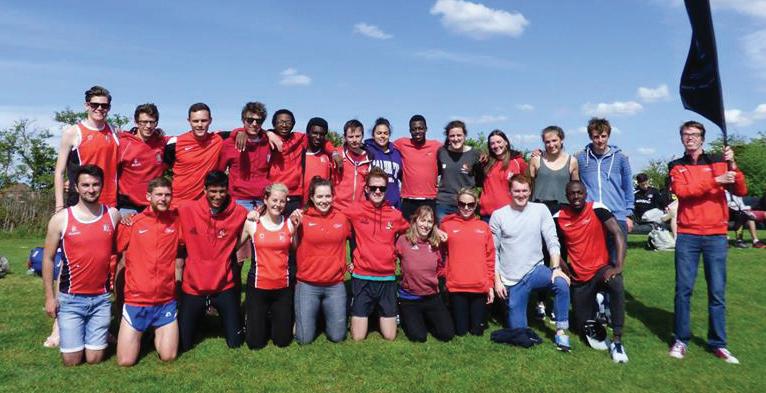
Joe Atkinson & Jack Boyce
CThe addition of Kortrijk again raises the question as to the City owner’s dedication to the Welsh capital club
mismatch of middle distance athletes and steeplechasers, who managed to become the first male CUAC 4x100 team to not get disqualified at BUCS Outdoors, although unfortunately the men’s 4x400 metre team did not manage to follow this example.
For some of the athletes it was a final farewell to BUCS Outdoors, including stalwarts Alaw BeynonTomas and Makoye Kampengele, as well as club President Rhys Annett. However, it was also a first BUCS Outdoors for nearly half of the Cardiff athletes, indicating that the team can only get stronger going forward and can look forward to more great BUCS Championships to come.
I would like to say a massive thank you to all the athletes who joined us at the weekend, including both those who did and did not compete, and another huge thank you to our fantastic drivers Rhys and Makoye who did another fantastic job of taking all the athletes to Bedford and back and doing the many trips from the hotel to the track and vice versa. It was a pleasure to lead the team as track and field captain at my final BUCS competition.
ardiff City owner Vincent Tan has continued to invest in football by buying another club, this time in the shape of Belgian top flight outfit KV Kortrijk.
Speaking on behalf of Tan, Cardiff City’s chief executive Ken Choo talked about the “fantastic potential for growth” at KV Kortrijk, and fleshed out the process of the impending purchase by outlining his several visits to the club that finished 5th in the Jupiler Pro League this season, behind the likes of Anderlecht and Standard Liege.
Te £3.6million acquisition of the West Flanders club has added to Tan’s growing collection of football clubs.
One of the clauses in his purchase of KV Kortrijk includes the agreement to not change the club’s badge and playing colours or the day-to-day management currently in charge at the club, mainly due to the identity change Cardiff have undergone the last few years, namely the change from the historical blue home kit to red, along with the update of the club badge to encoporate a dragon and

Cardiff fans were subjected to a bittersweet final game of the season away to Nottingham Forest, with a comfortable display from Russell Slade’s men as young midfielder Joe Ralls and January signing Eoin Doyle got on the scoresheet to secure a 2-1 win at the City Ground.
other Malaysian influences.
Already under the Malaysian businessman’s wing are Bosnian capital club FK Sarajevo and the potential future MLS franchise Los Angeles FC, as well of course, as Russell Slade’s Bluebirds.
Te addition of Kortrijk to Tan’s monopoly again raises the question as to the City owner’s dedication to the Welsh capital club.
Tan has cut back funding to Cardiff following their promotion and subsequent relegation from the Premier League. Recent signings such as Stuart O’Keefe, Eoin Doyle and Alex Revell emphasise the chairman’s decision to be more financially scrupulous at the Cardiff City Stadium.
Bluebirds fans will be worried as to the intentions of Tan who continues to invest his money in an expanding range of random clubs with no clear plan going forwards. Some may question whether Cardiff will benefit from Tan’s monopolisation, however, City have yet to benefit from any of the potential feeder clubs that Tan’s multiownership has made a possibility.
Tis was arguably the best performance City fans had witnessed all season. However, some are asking why these types of performances were so few and far between in a frustrating return to the Football League Championship.
Tis coming summer transfer window will be a fascinating one for the Bluebirds’ faithful, as Slade will truly take the reins as he continues his bid to mould his playing squad into something he deems will be able to push back up to the upper echelons of the Championship table and even towards a promotion push to the Premier League.
Despite the season only finishing at the start of May, Slade has already triggered the start of a possible exodus,

releasing Cardiff City legends Kevin McNaughton and Danny Gabbidon, along with the underwhelming Nicky Maynard.
McNaughton will receive a testimonial match in his honour some time over the summer, which will allow Cardiff fans to show their appreciation for a fantastic defender who served for nine years, including the glorious Premier League promotion year.
Kevin was extremely well liked around the club, as he always seemed
to play with a lot of heart in every game, and Bluebird fans will be gutted to see him leave.
Since arriving in October, Slade, unlike previous manager Ole Gunnar Solskjær, has been known for his desire to acquire squad depth from lower profile footballers, and that looks like it will continue. Slade looks set to continue his raid of Chesterfield - after snatching Doyle in the winter window he has been linked to youngsters Sam Clucas and Sam Morsy.
tweet us @gairrhyddsport
email us sport@gairrhydd.com or visit us online at gairrhydd.com/sport

Gair Rhydd reflects on what the 2014/15 season brought for Swansea City, Newport County and Wrexham F.C.
Other than Cardiff City, three Welsh clubs compete in English divisions: Swansea City, Newport County and Wrexham F.C. Tis week, we are shifting our focus and taking a look at how these sides have fared this season.
Swansea are now in their fourth term in the Premier League, having been the first Welsh club to play in it
back in 2011. Having now found their feet in the top flight, Swansea looked at their most confident this season, with manager Garry Monk winning praise and looking set to win his fair share of silverware in the future.
Newport managed a creditable 14th place on their return to the Football League last season and have looked to solidify their status as a league side

in 2014/15, building towards climbing another rung up the ladder.
Wrexham have struggled to find any basis of confidence since their relegation from the Football League back in 2008, having spent the previous 87 years as a league side. Now Conference regulars, the Dragons toyed with fans this season, providing glimpses of hope but failing to find

any consistency. Late-season form and a new manager with experience of lifting clubs out of the doldrums will give Wales’ oldest club a new sense of optimism moving forward.
Te three clubs have been proudly flying the flag for Welsh football in England, and each have used the 2014/15 season as a stepping stone towards bigger things.


Further analysis on page 30
